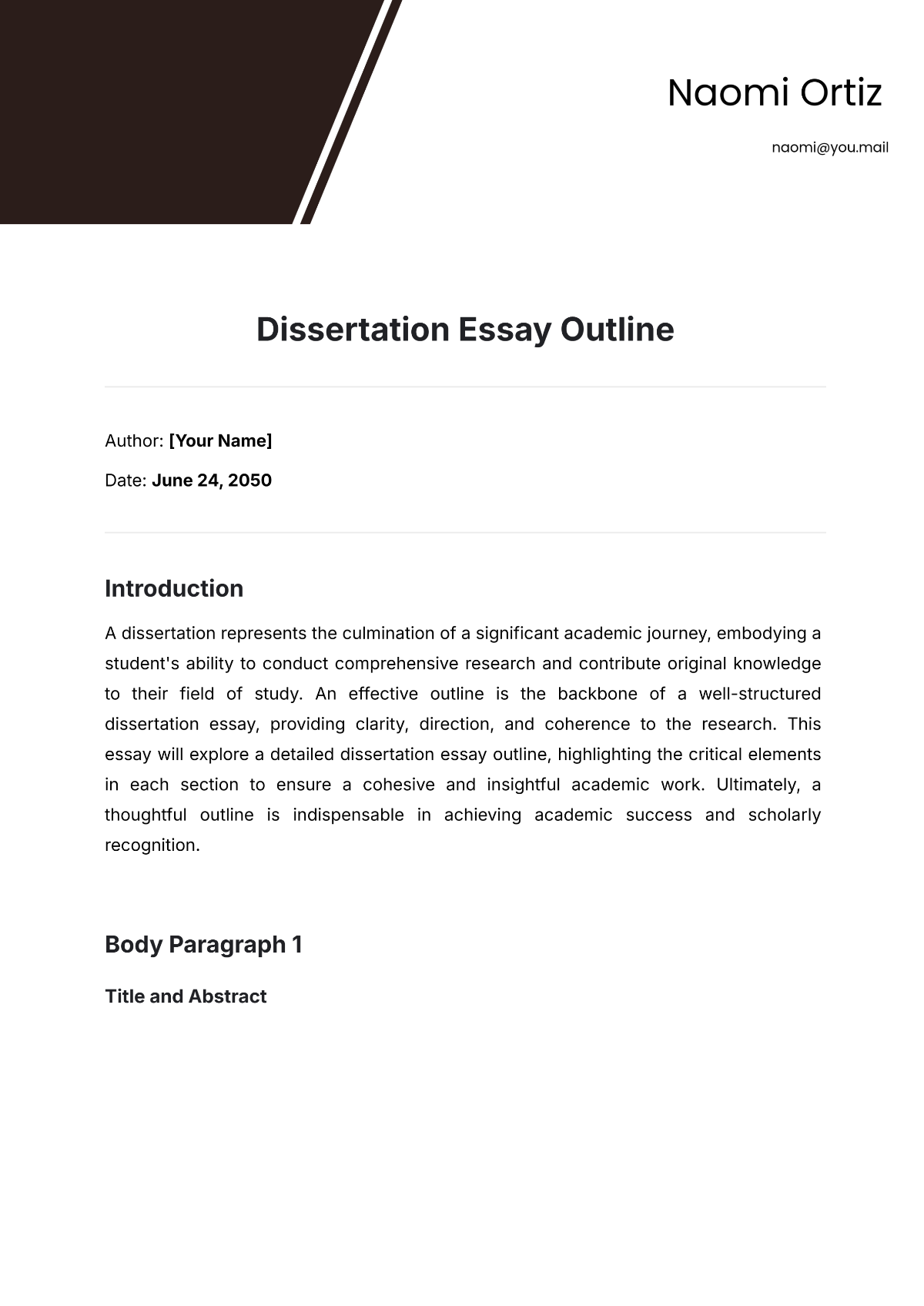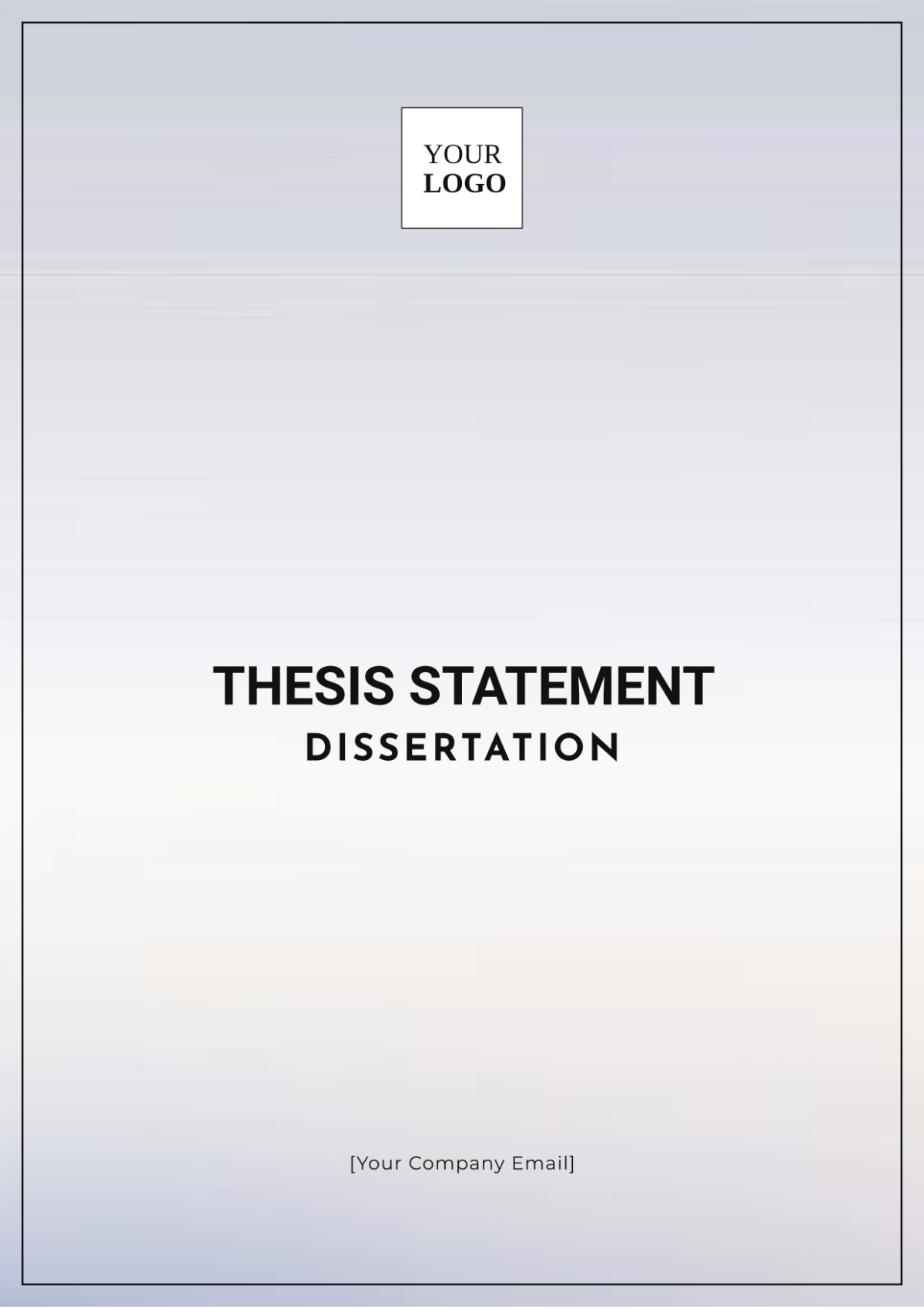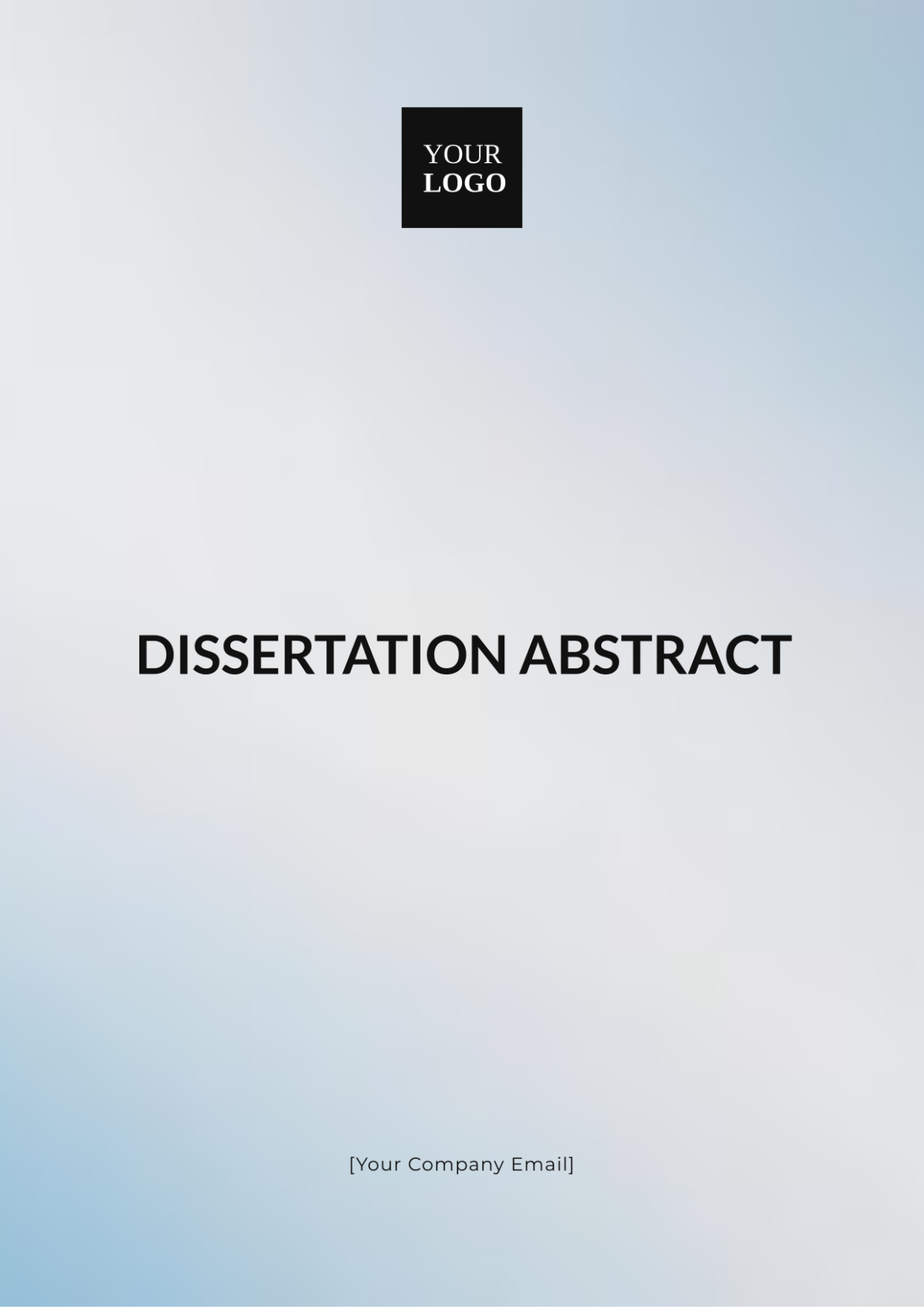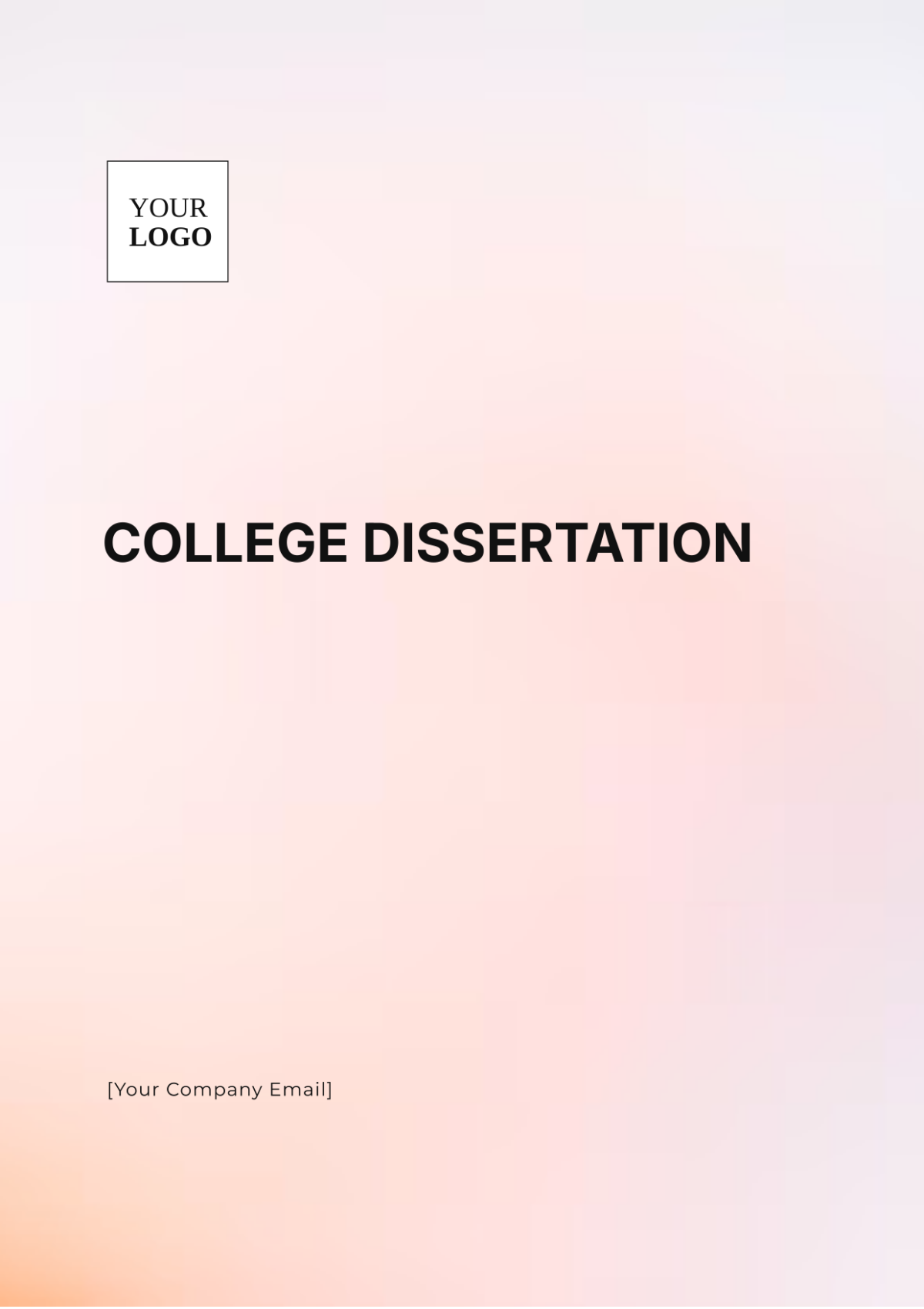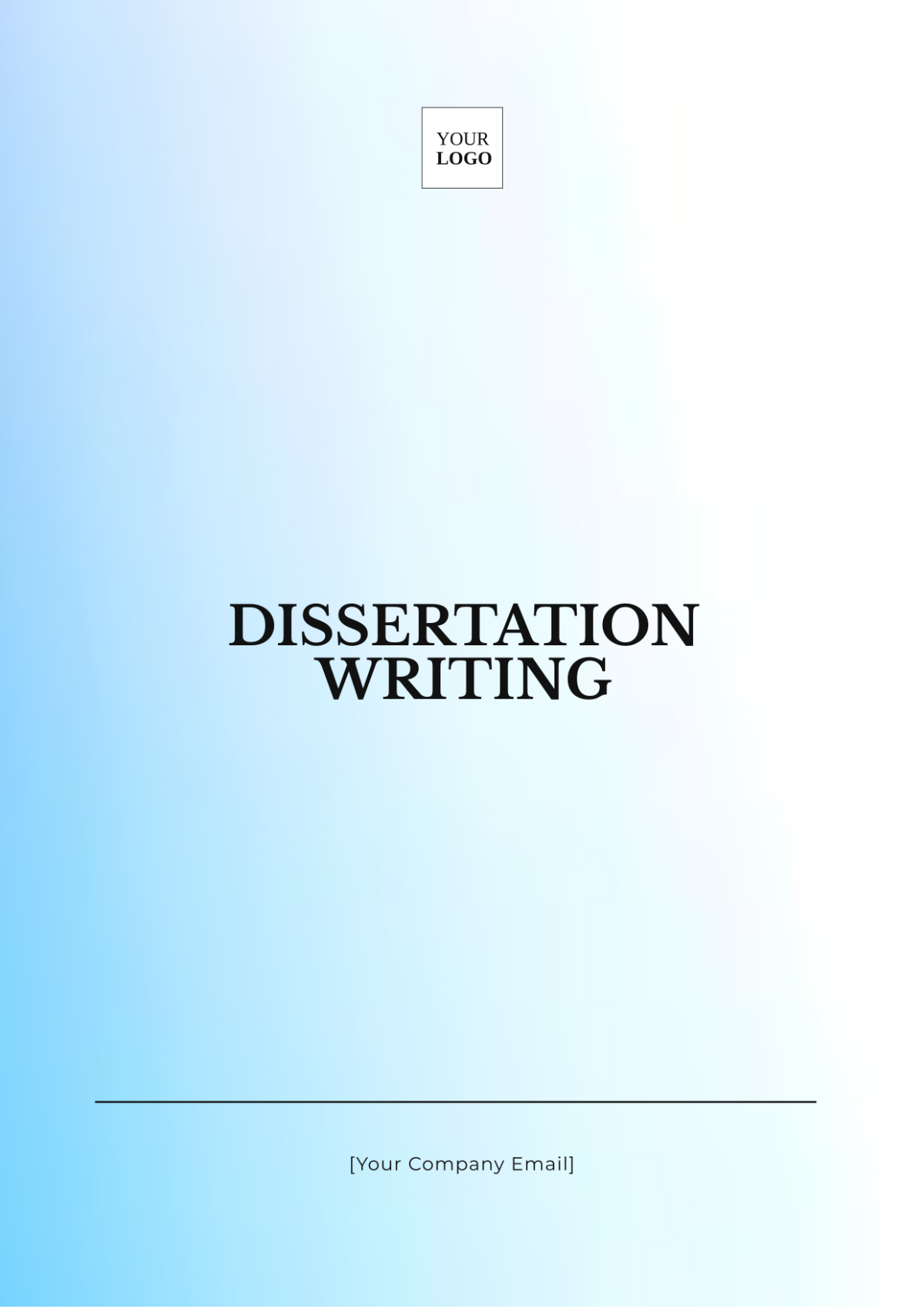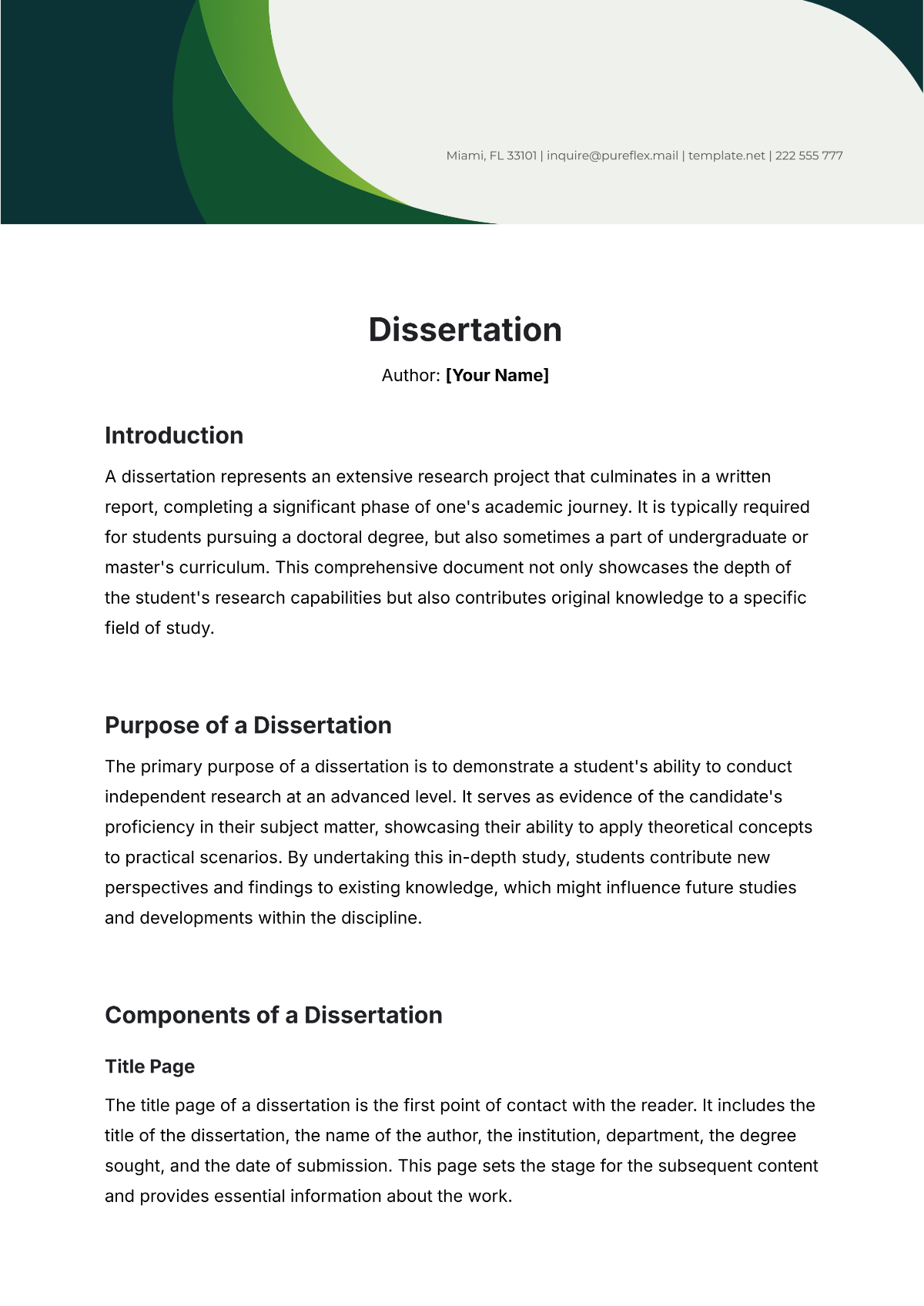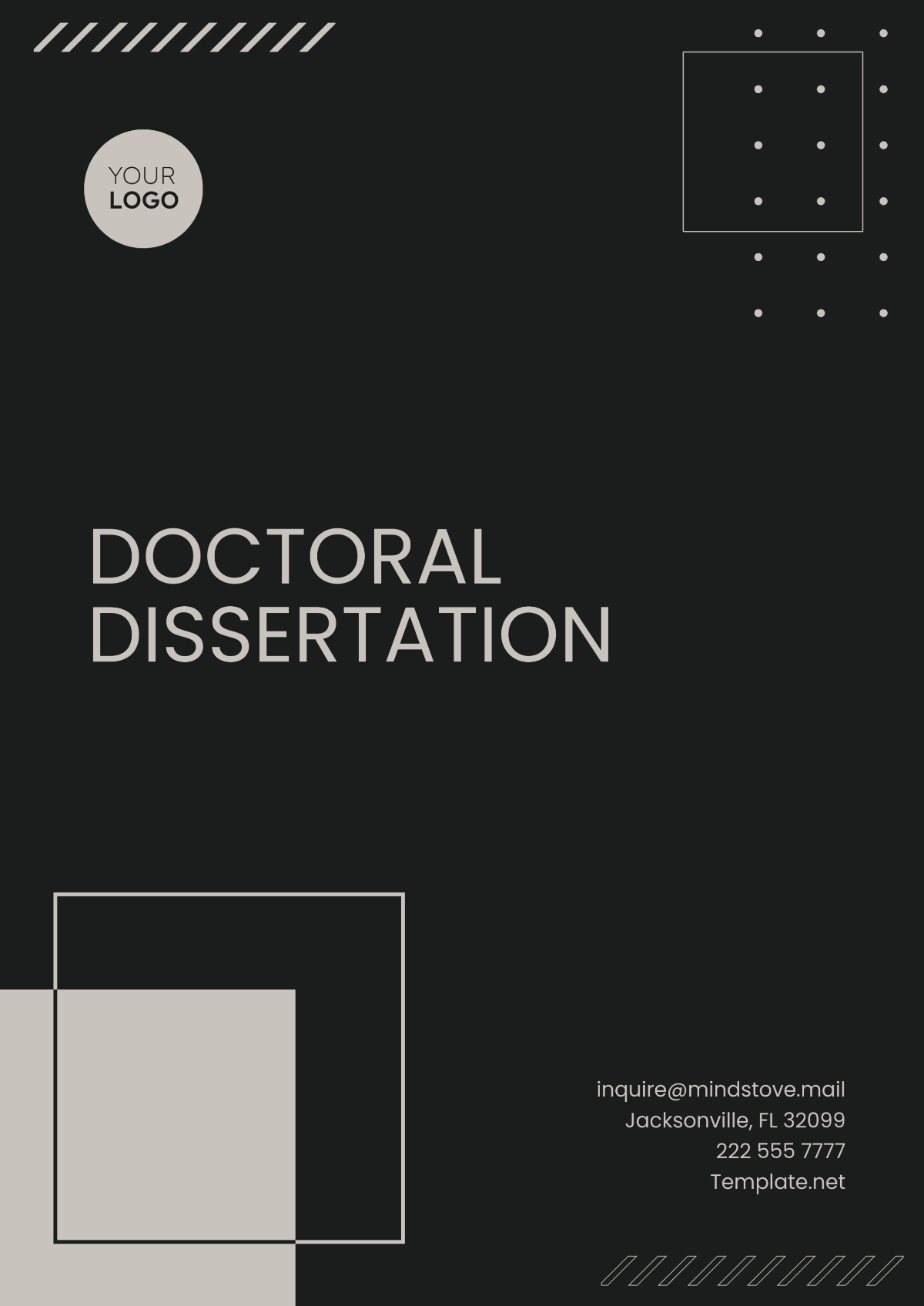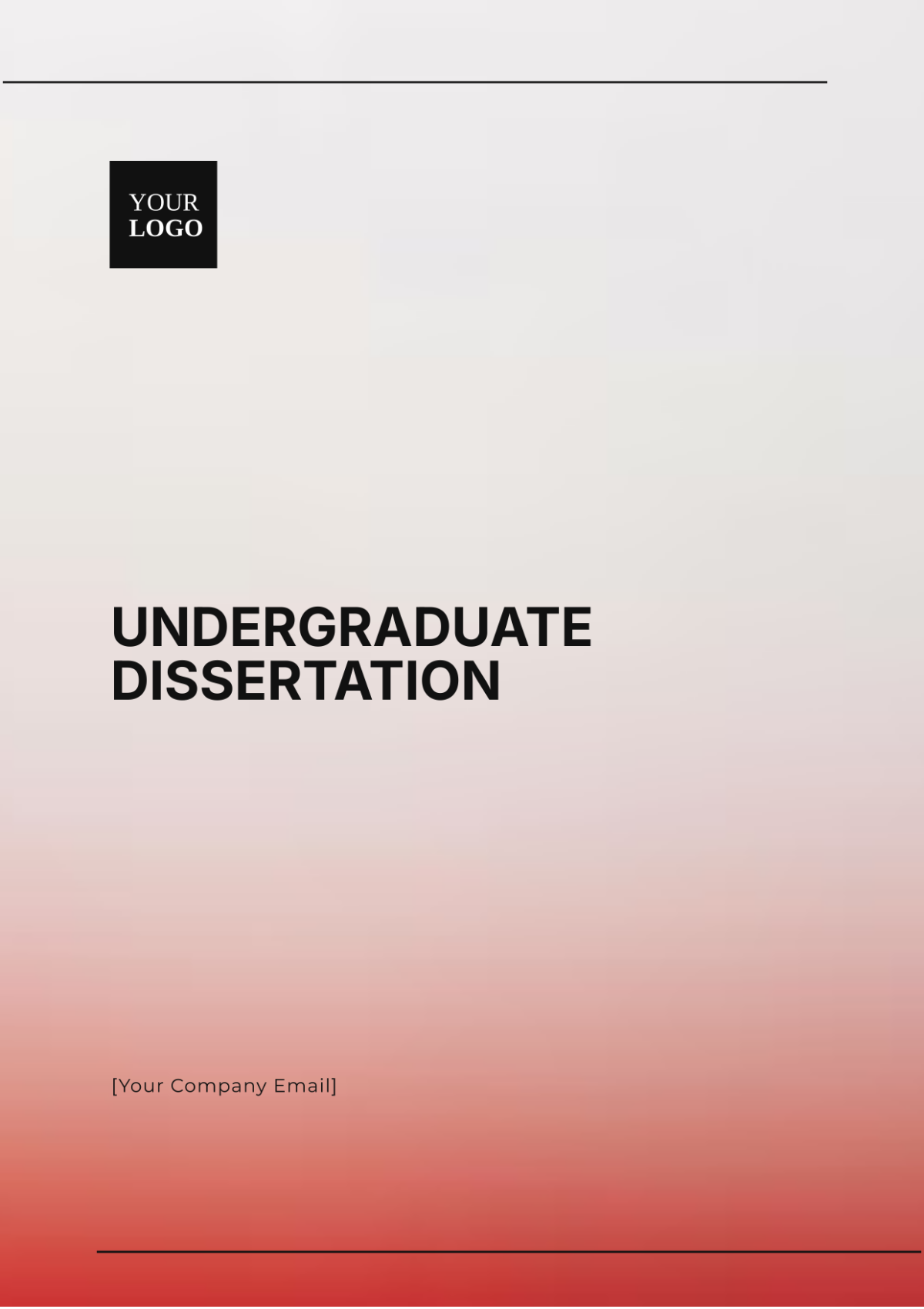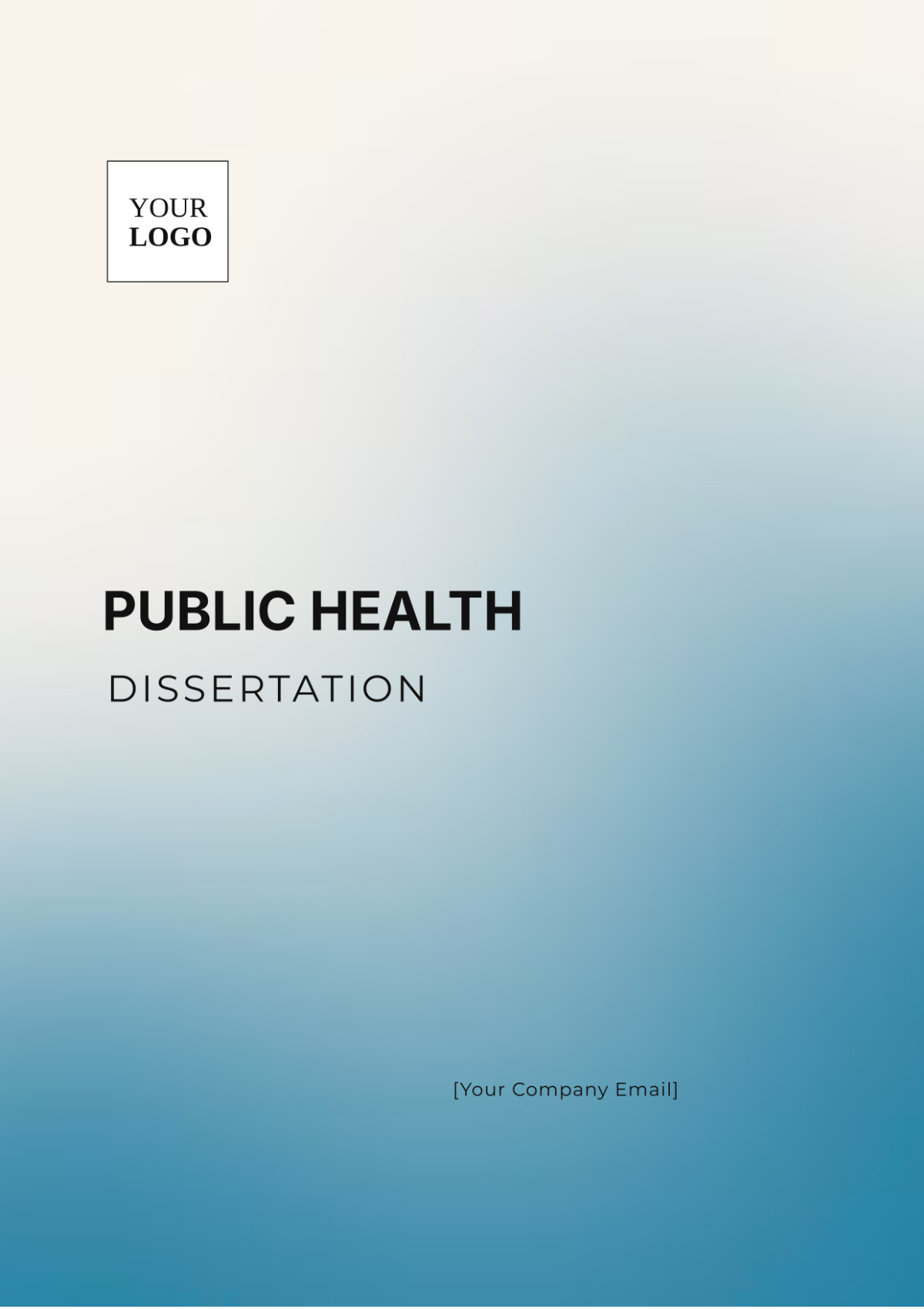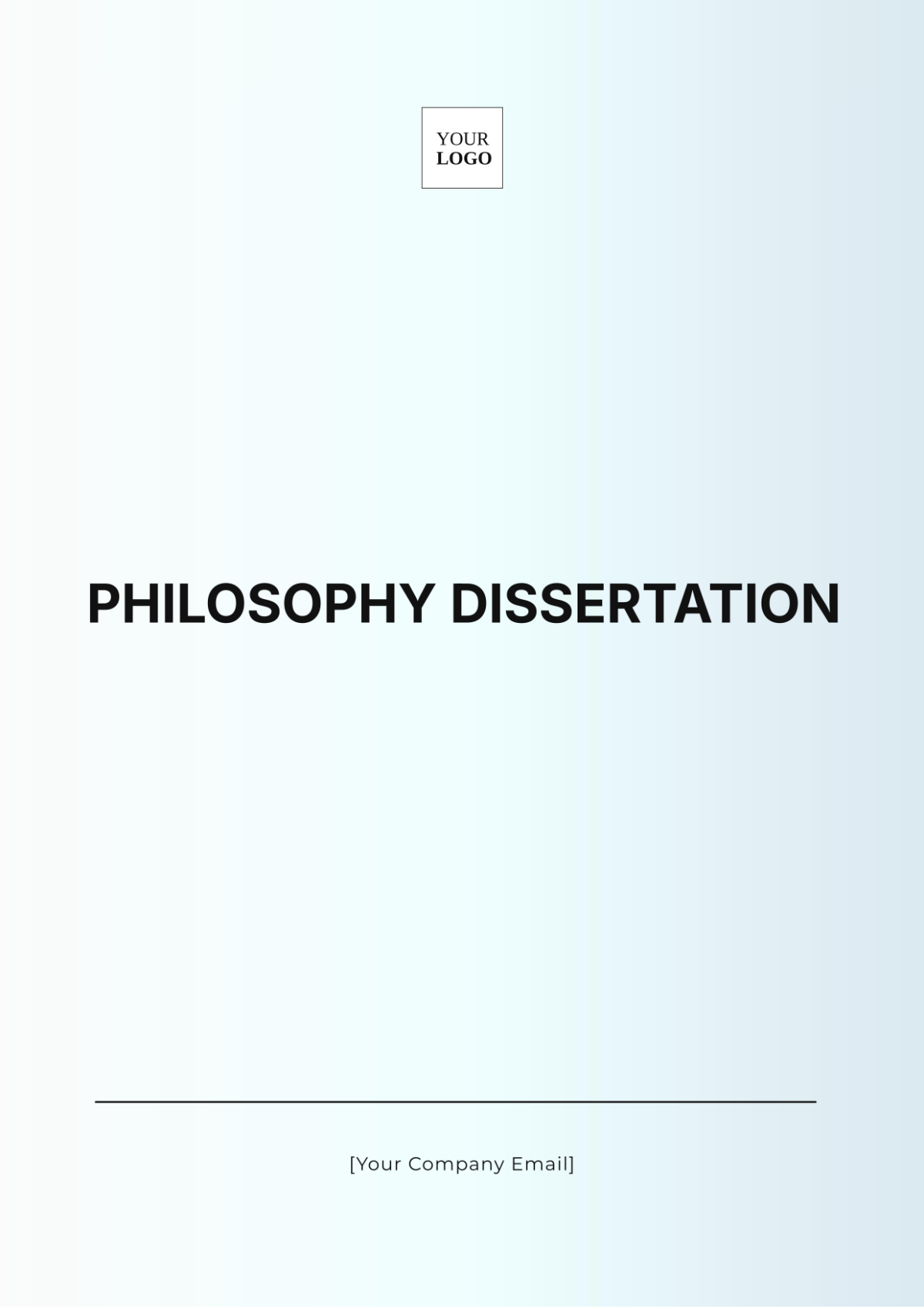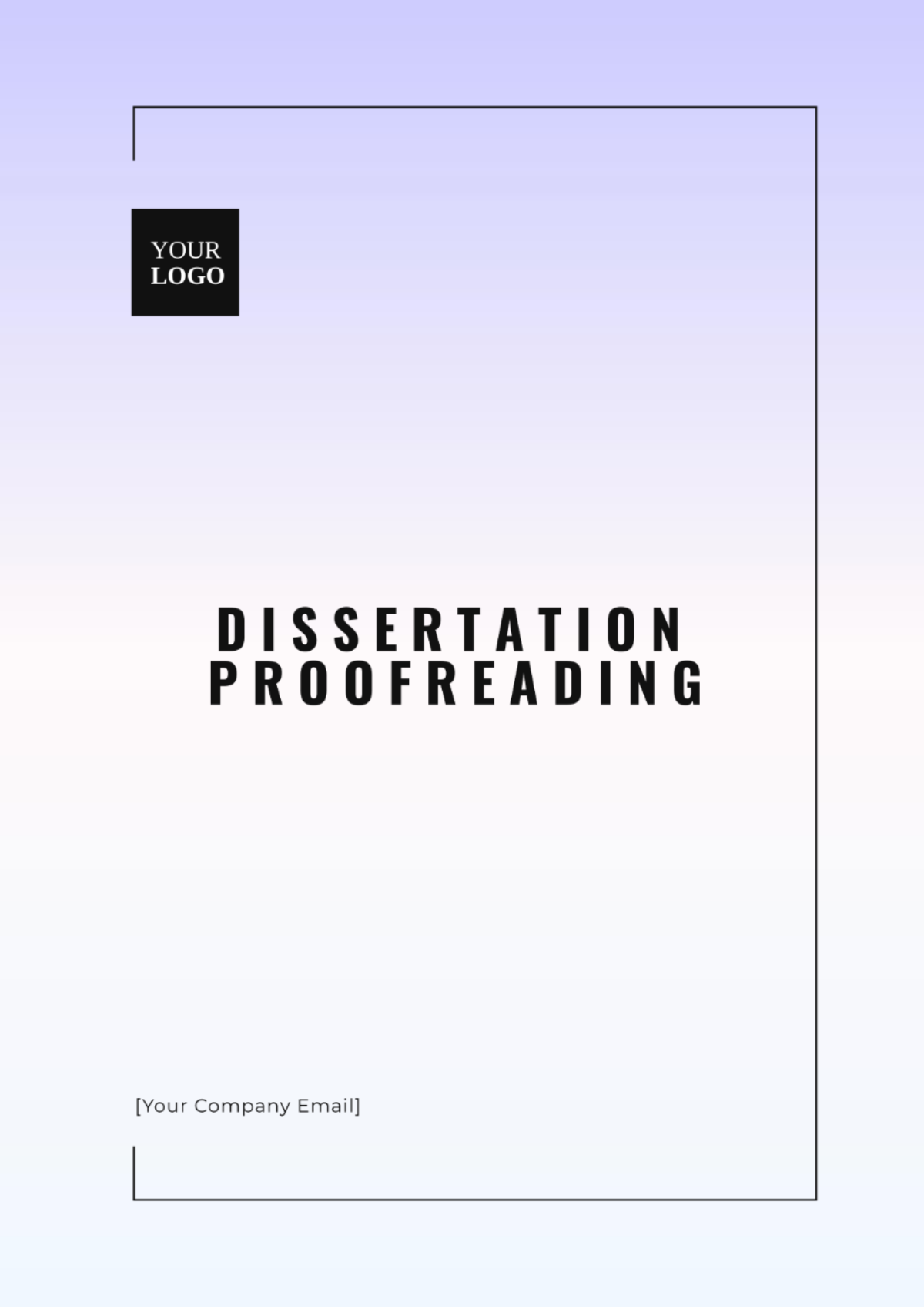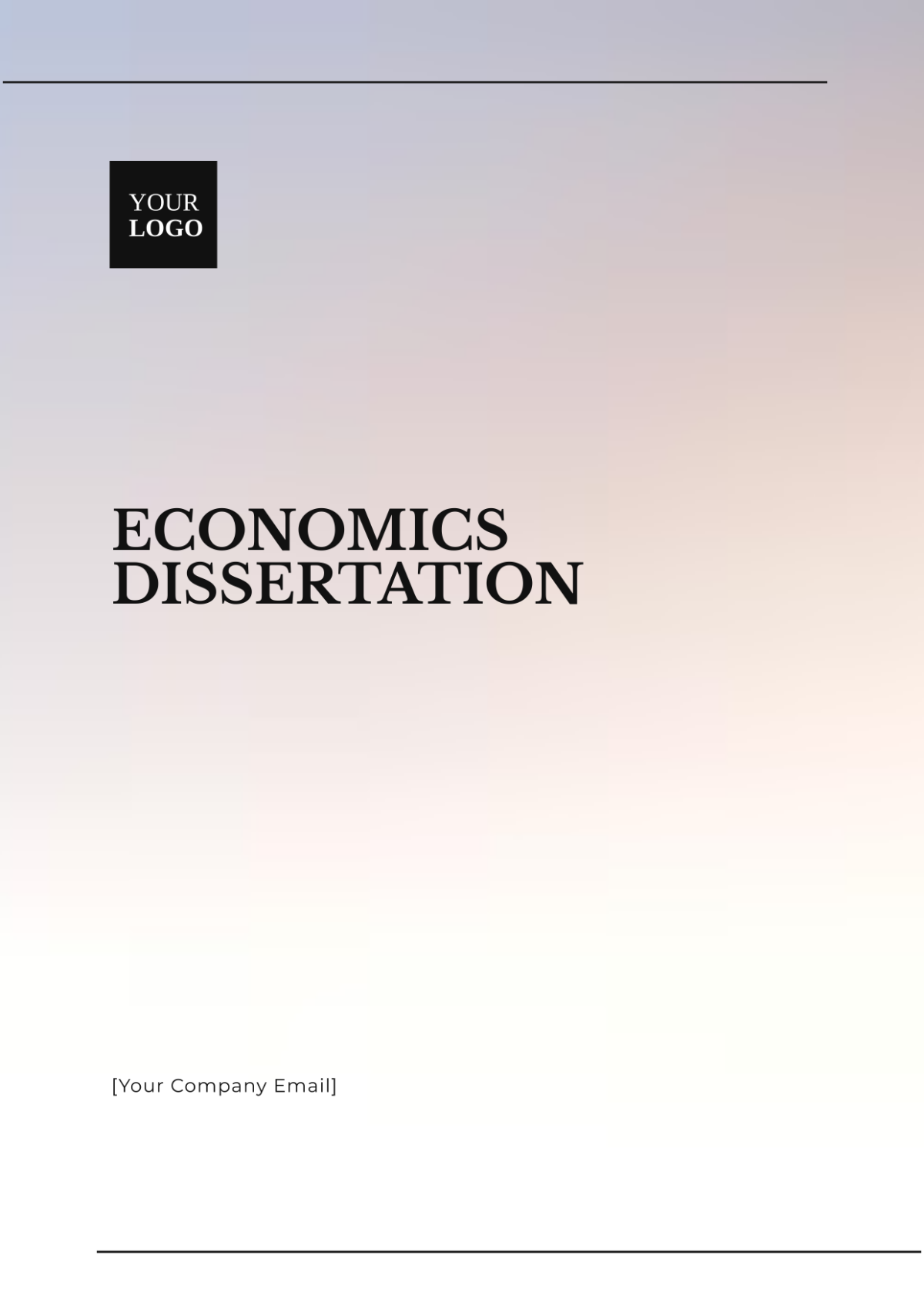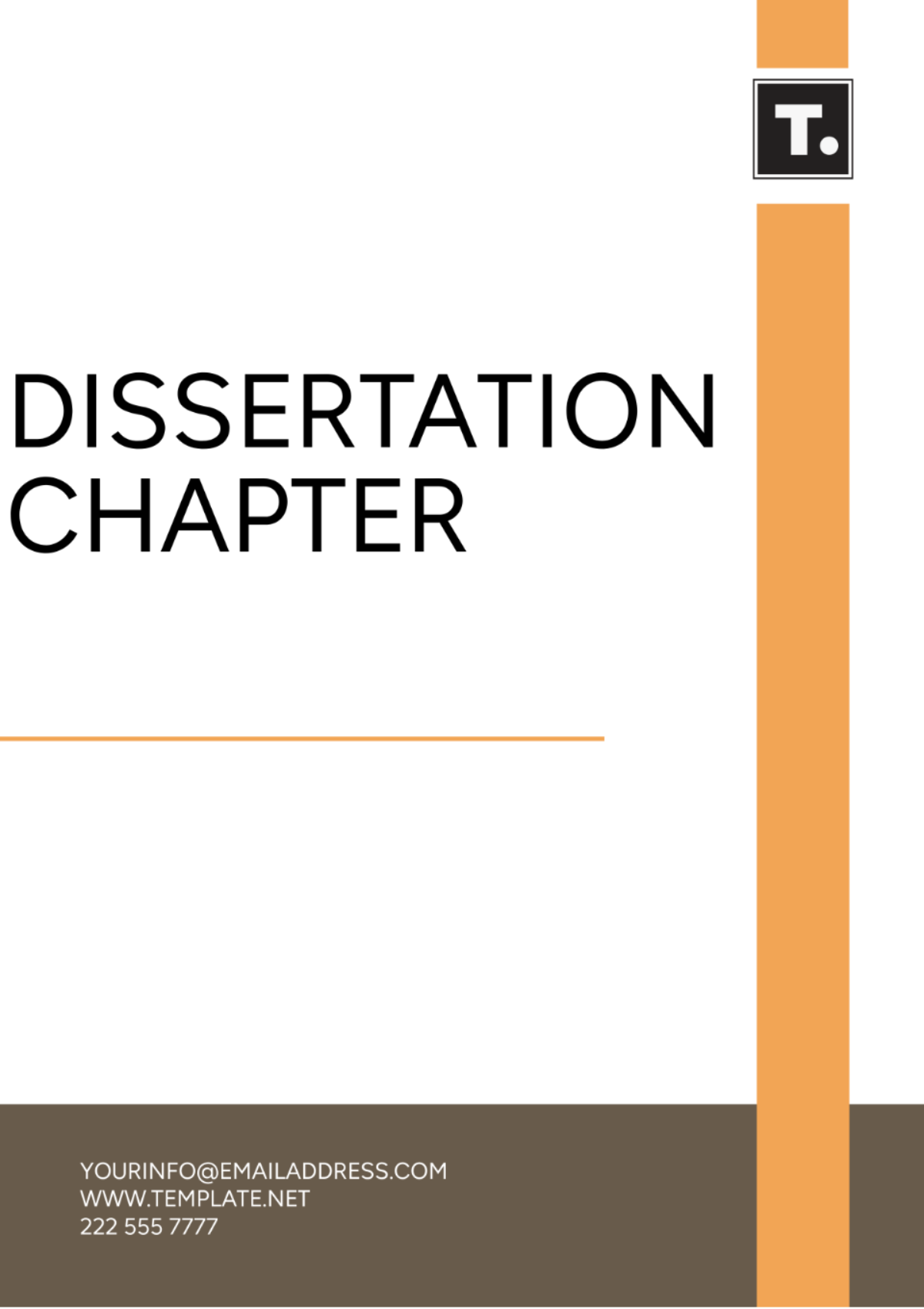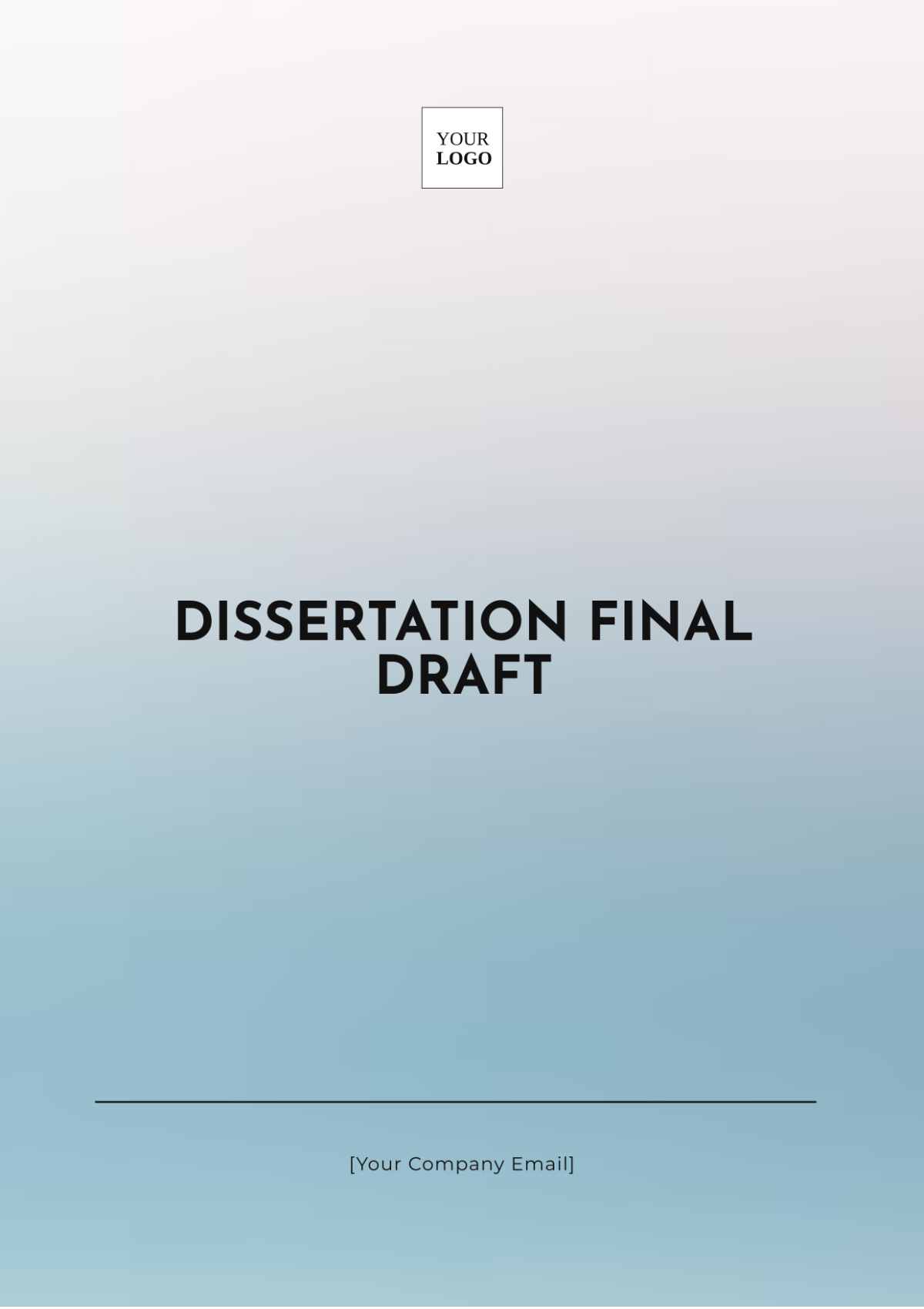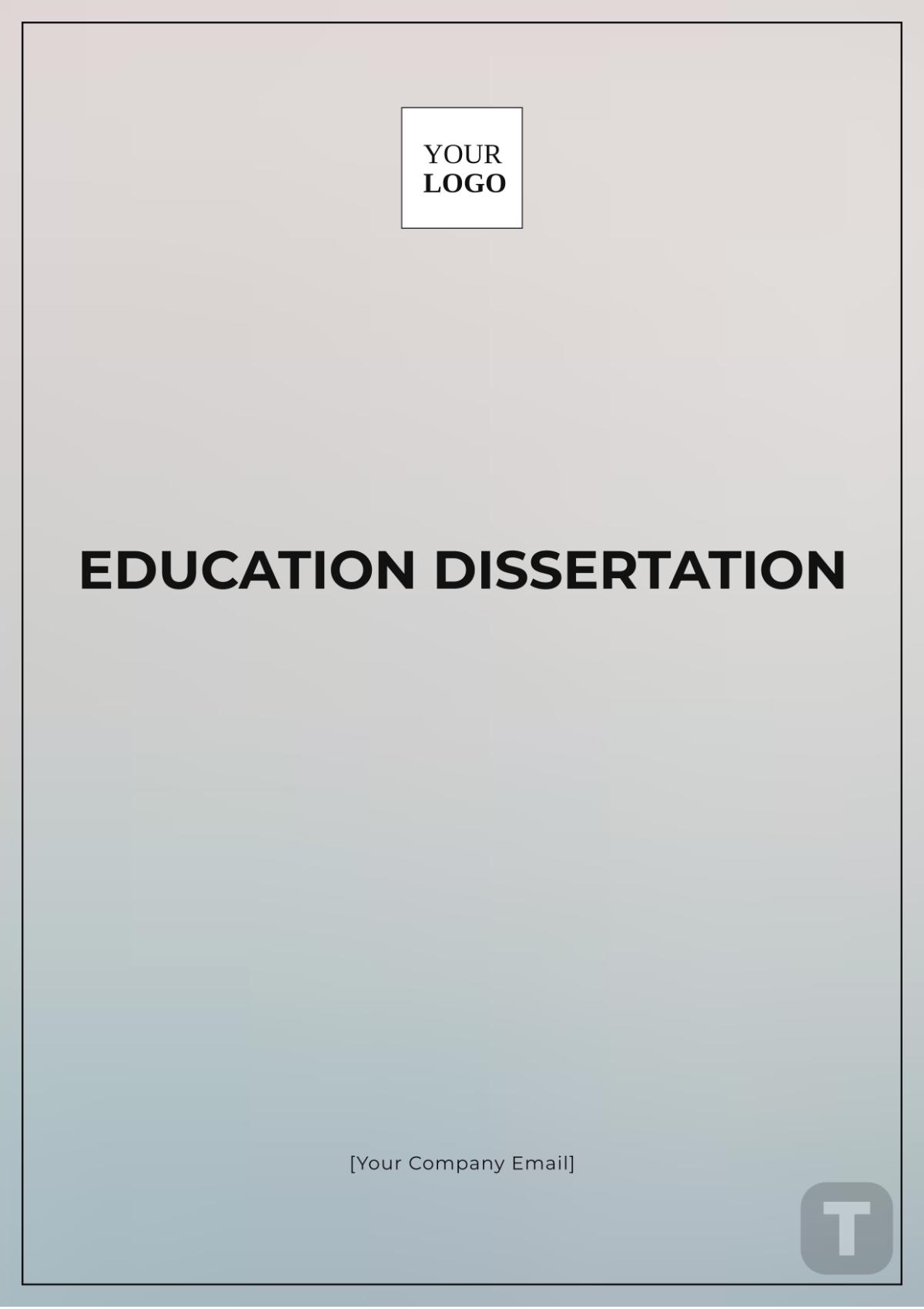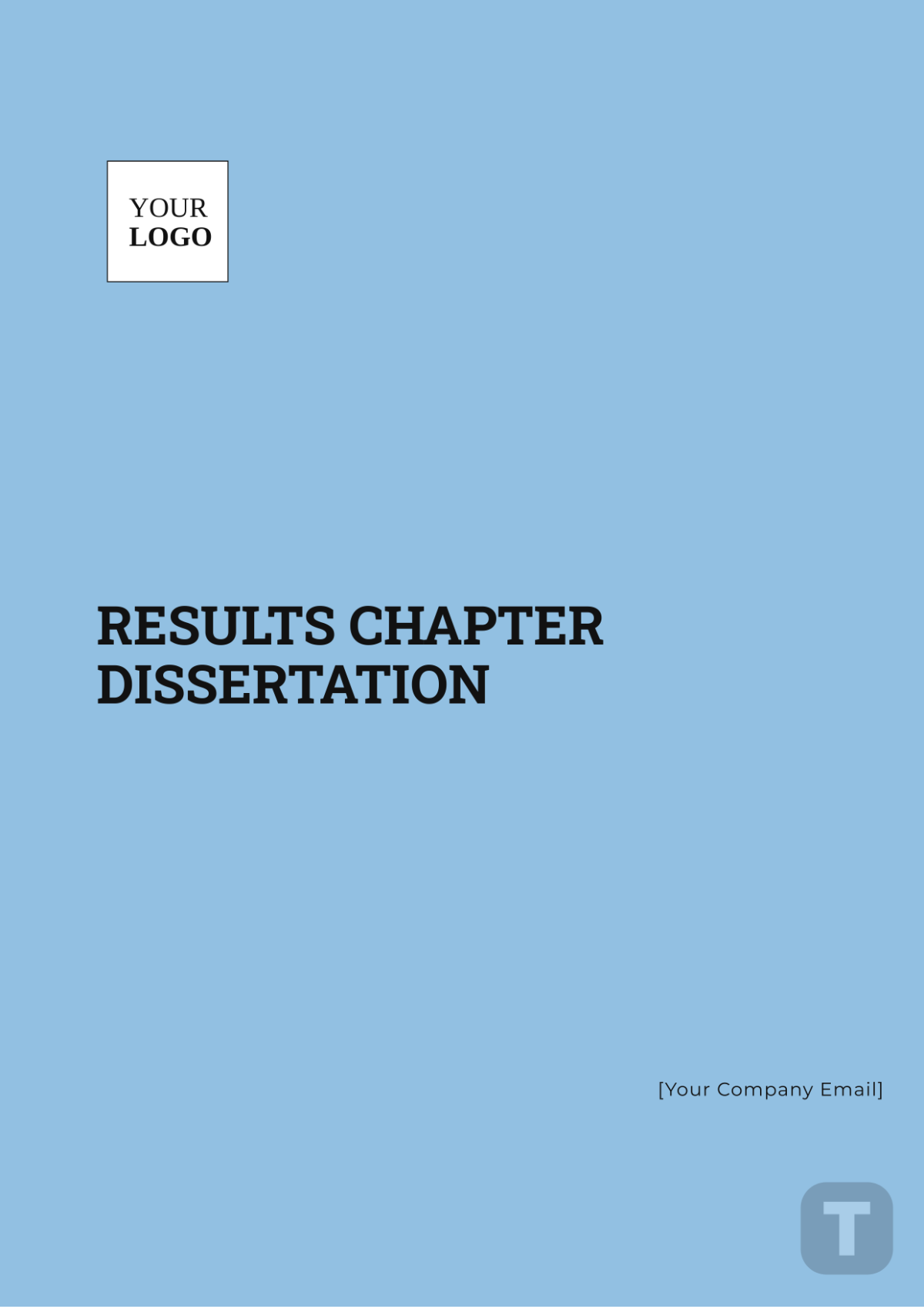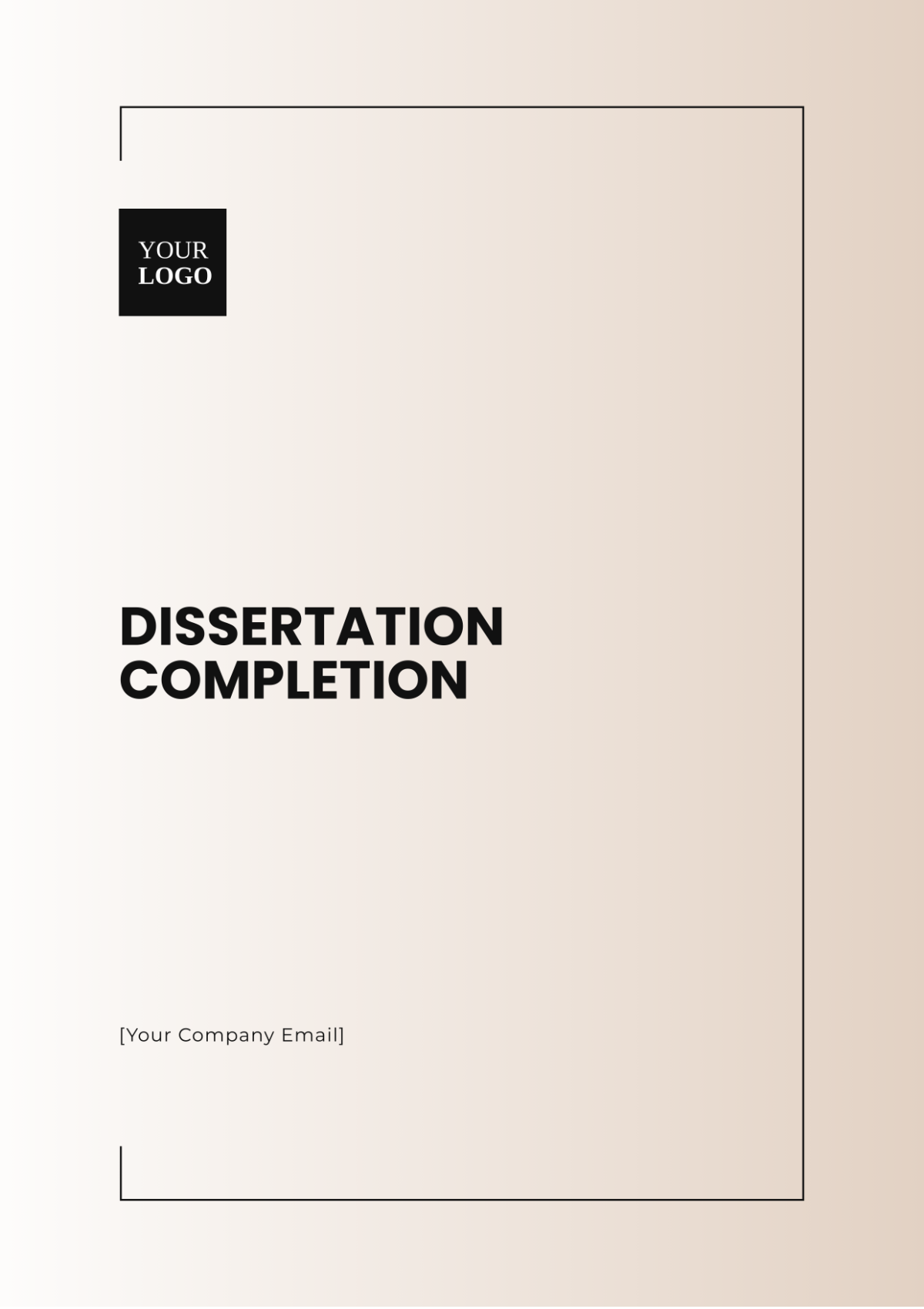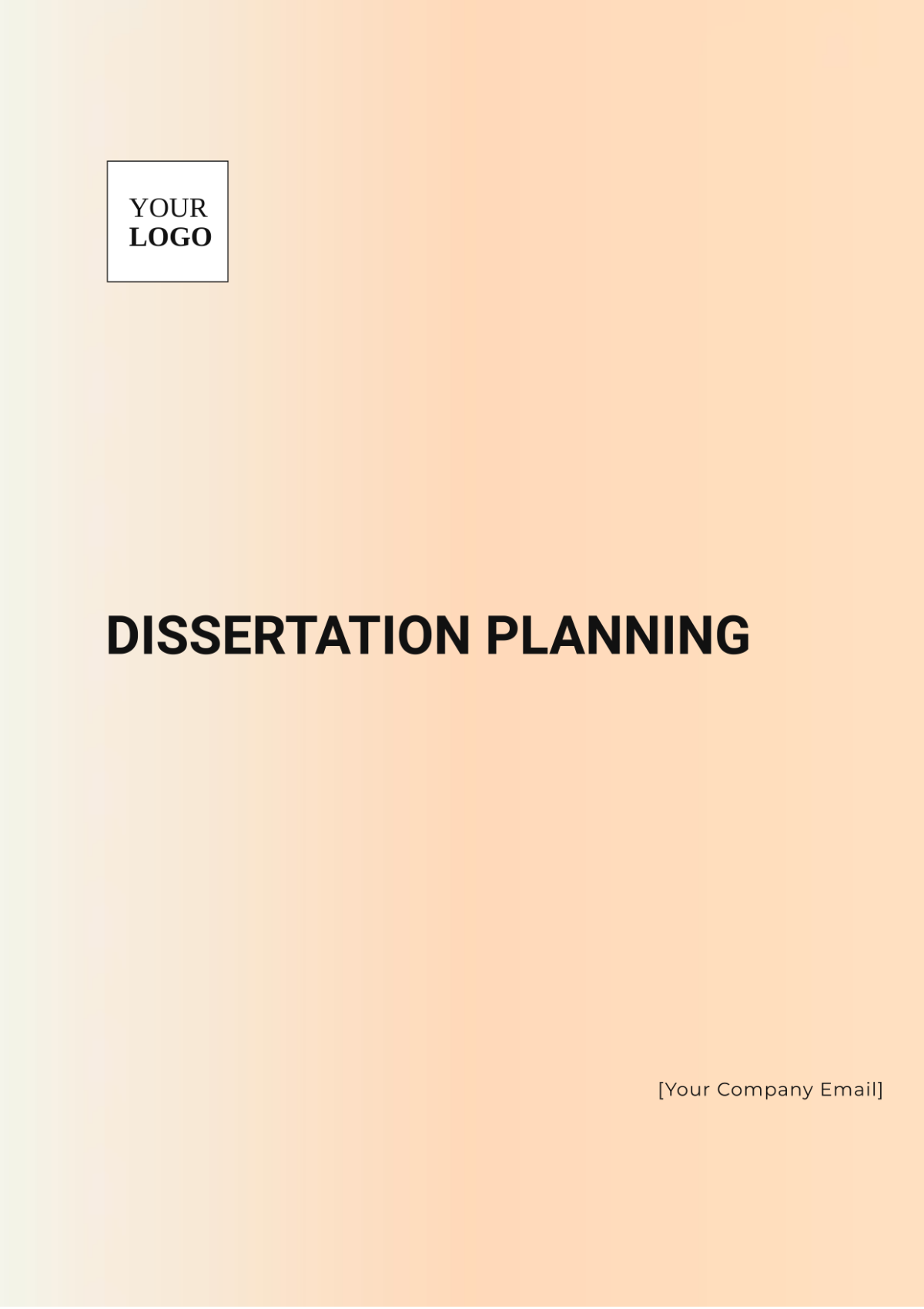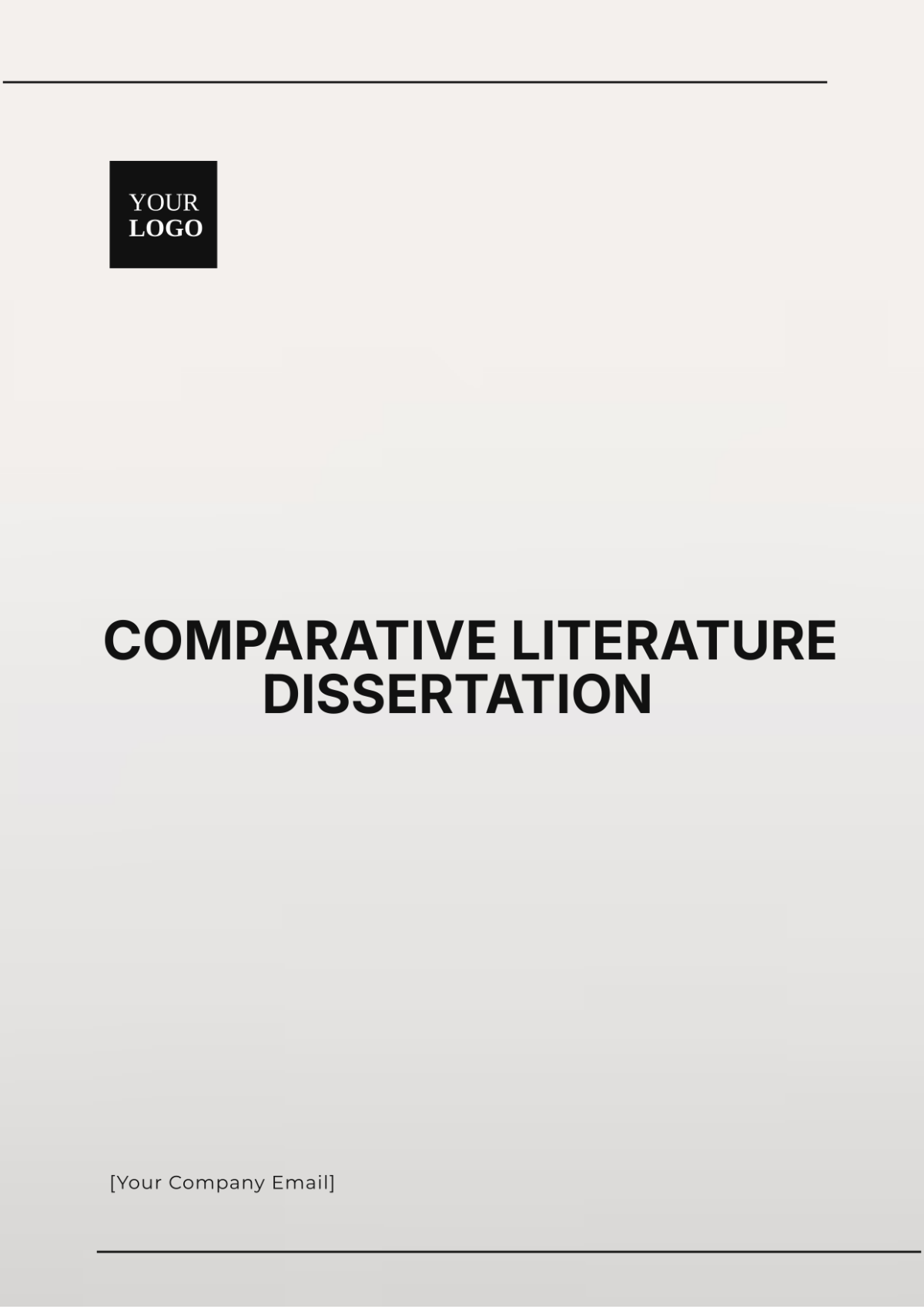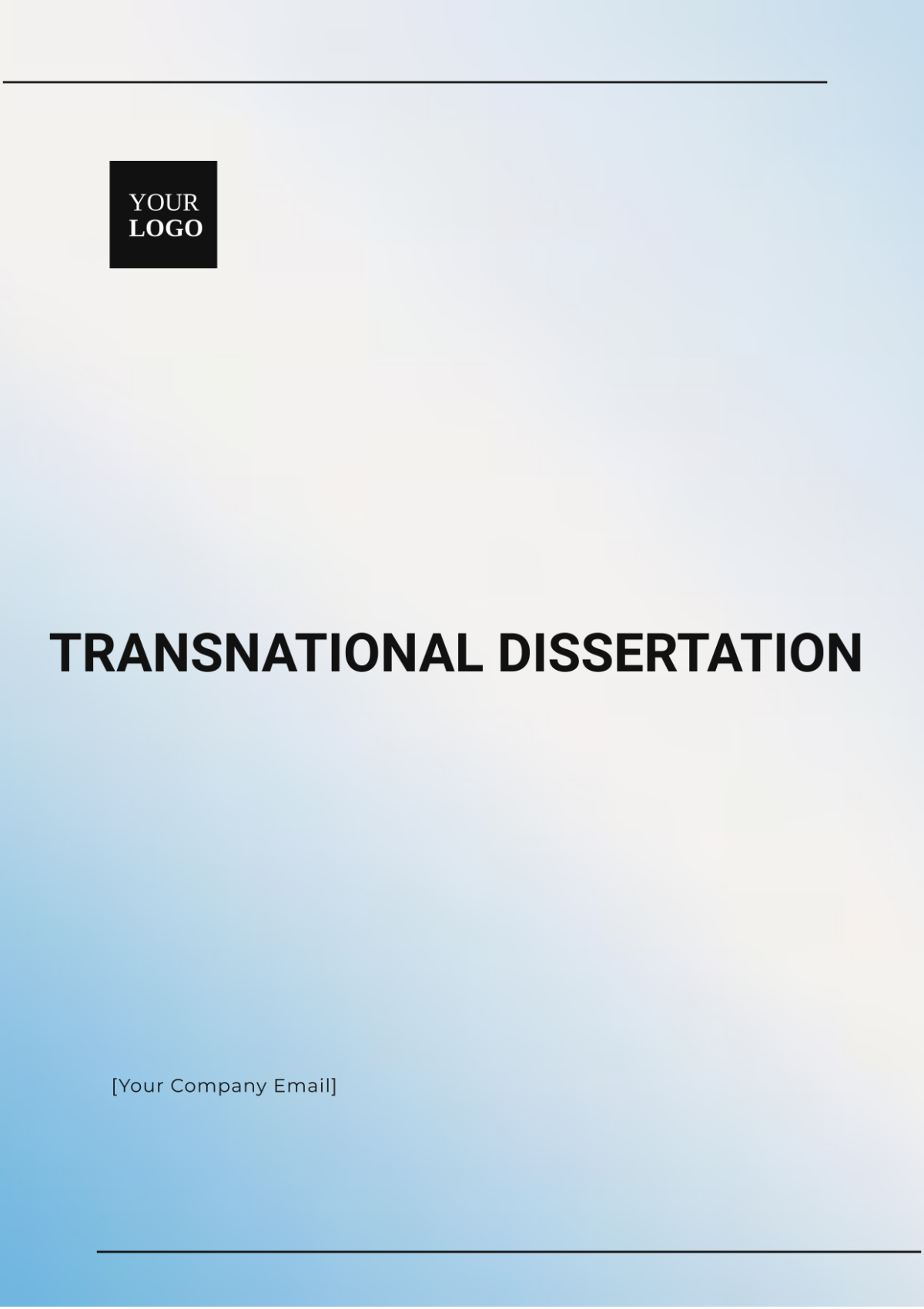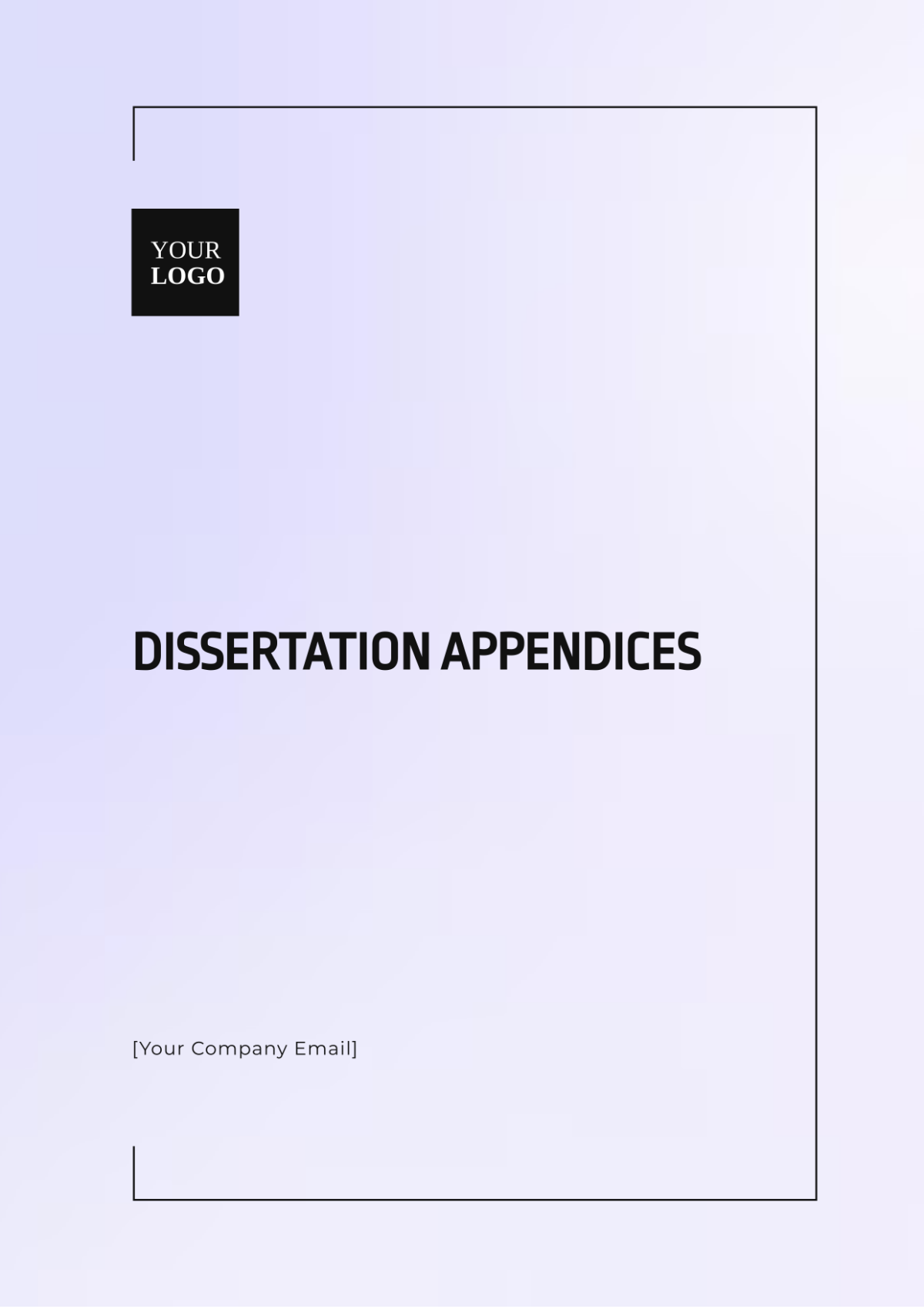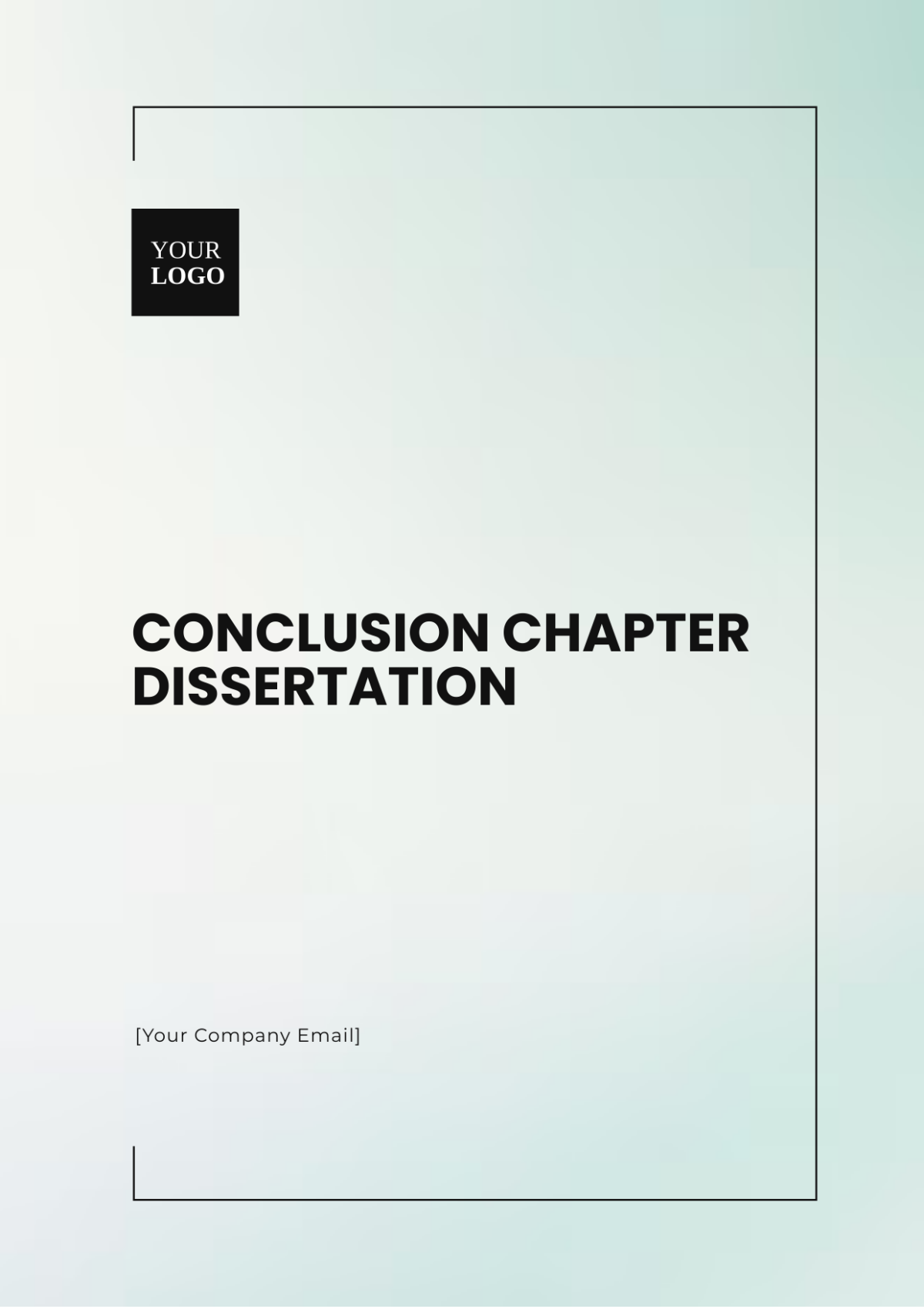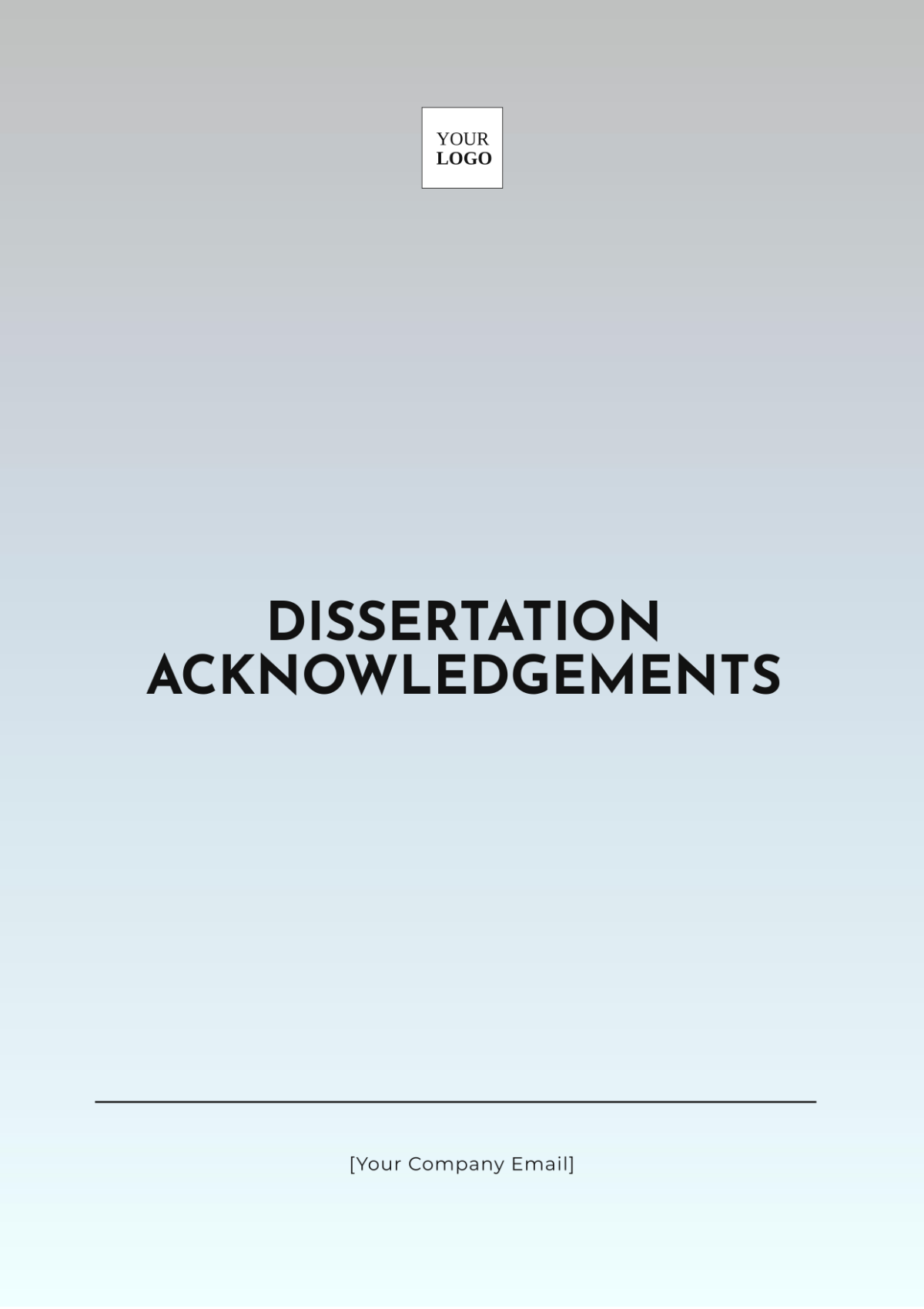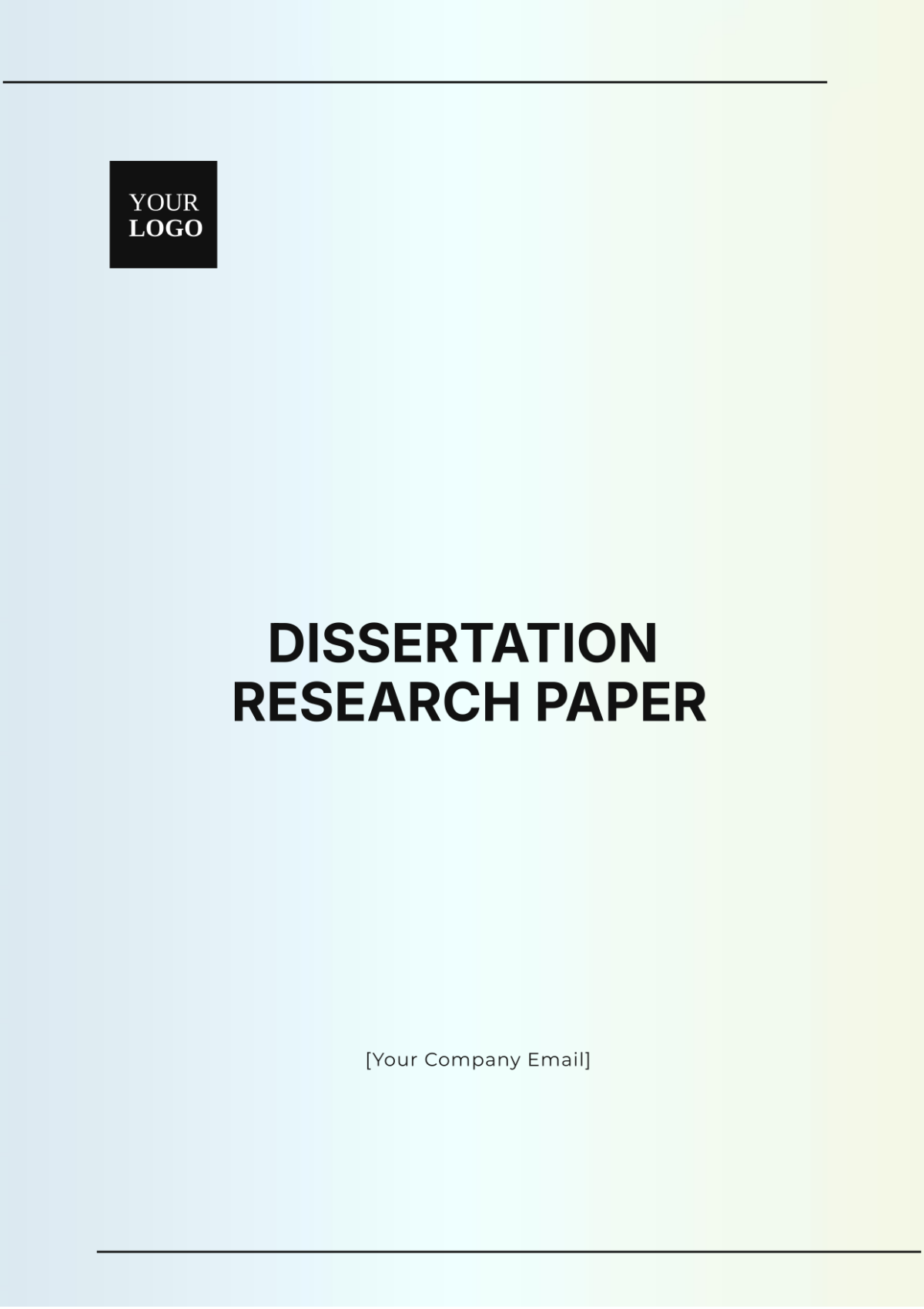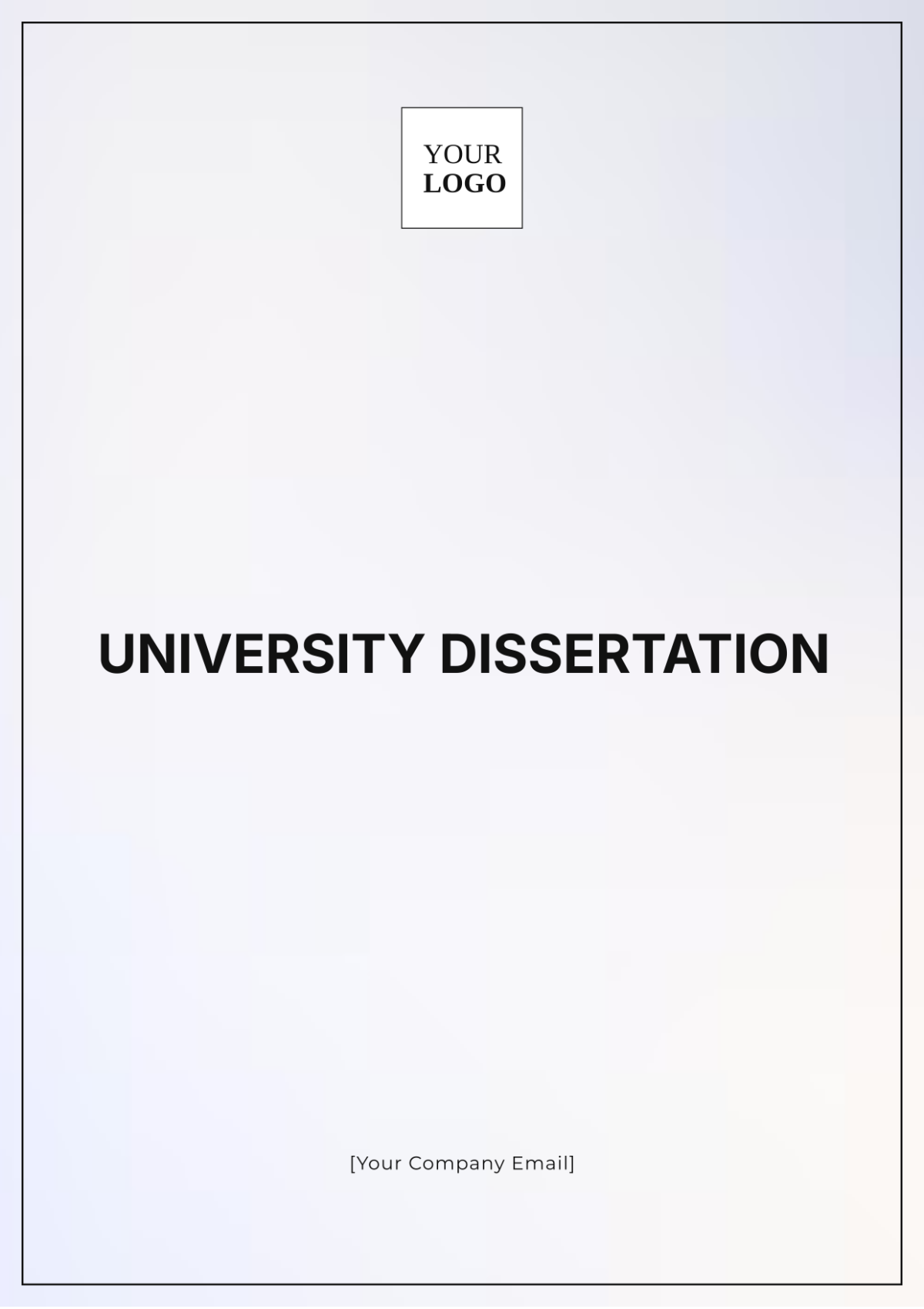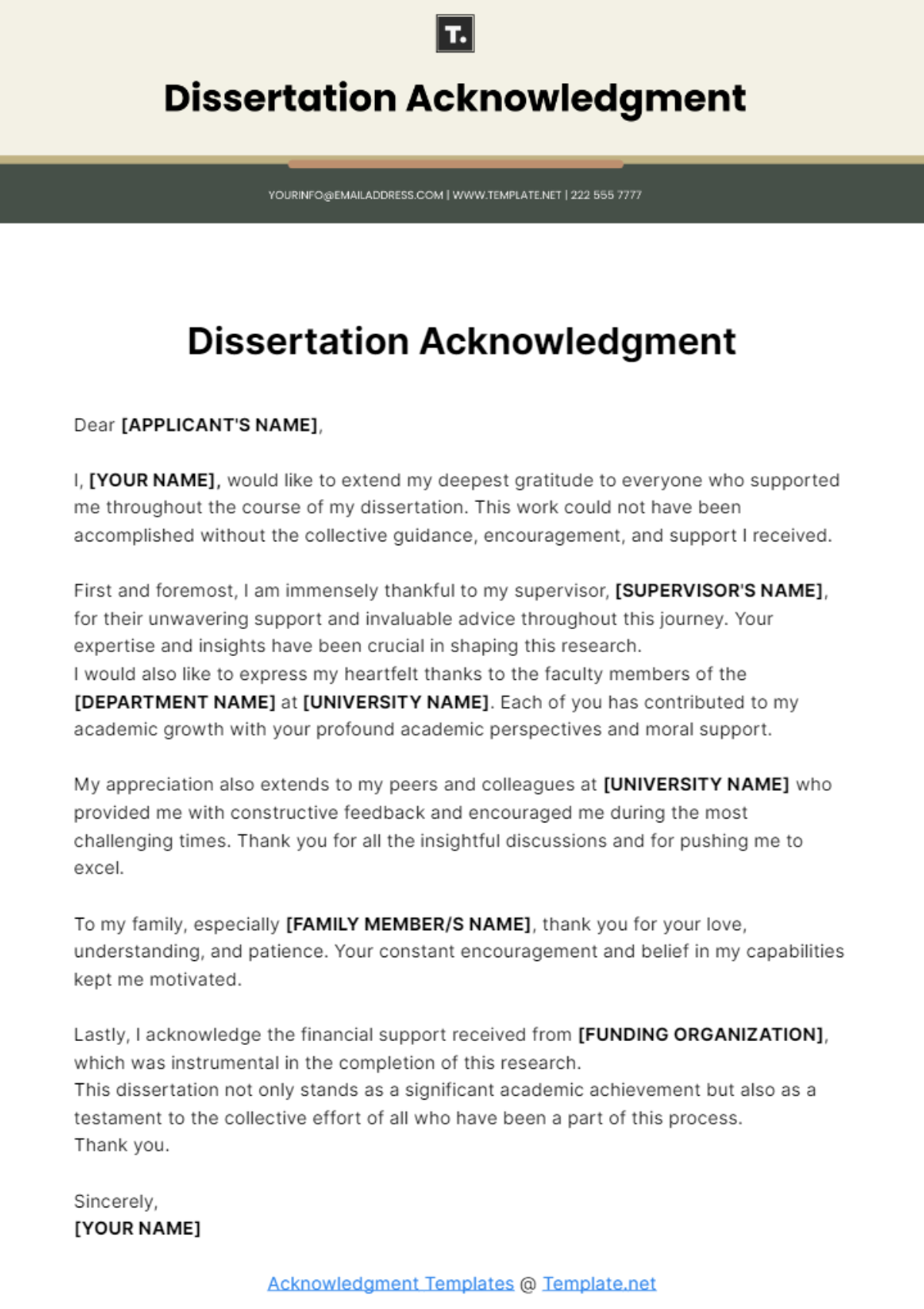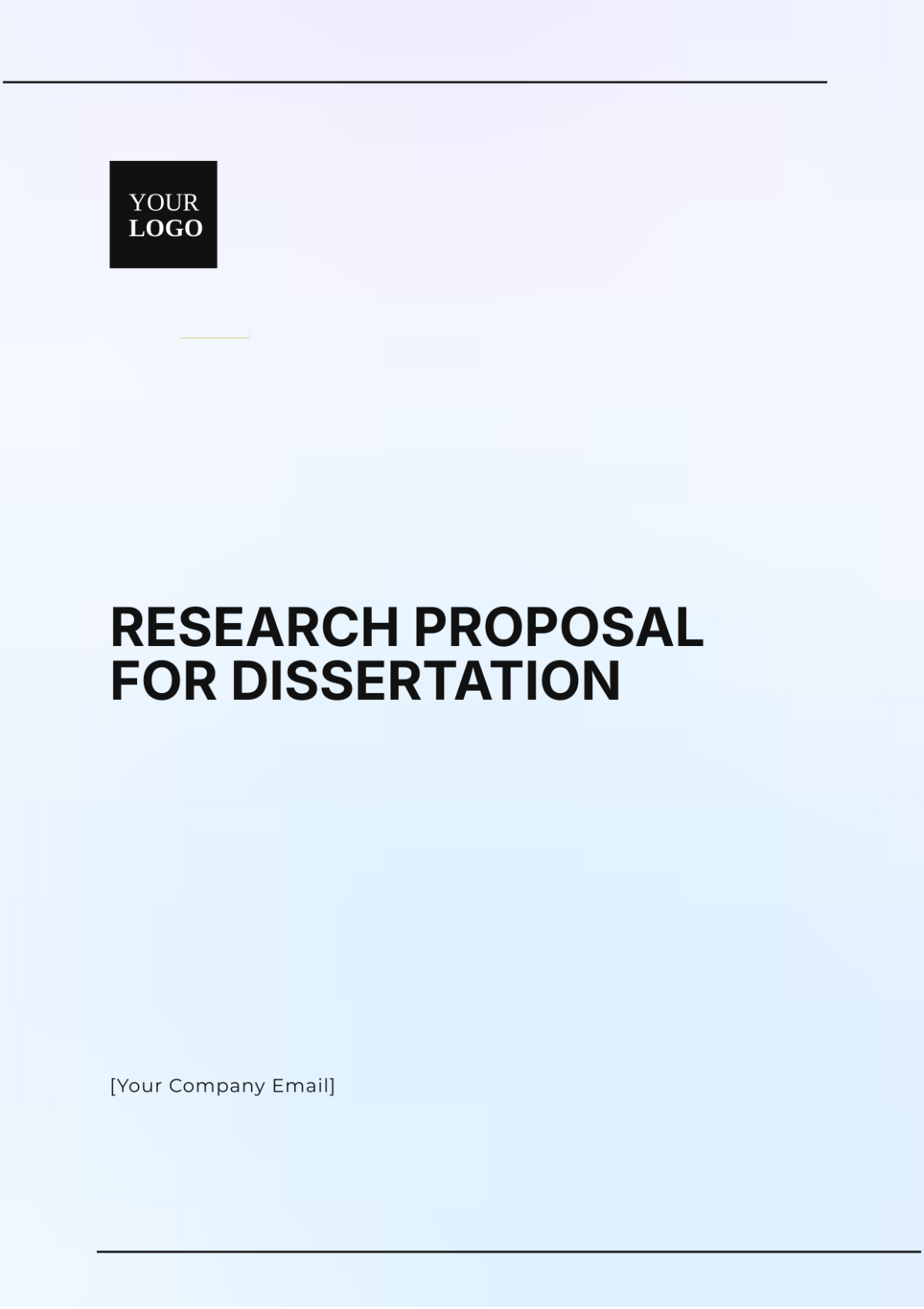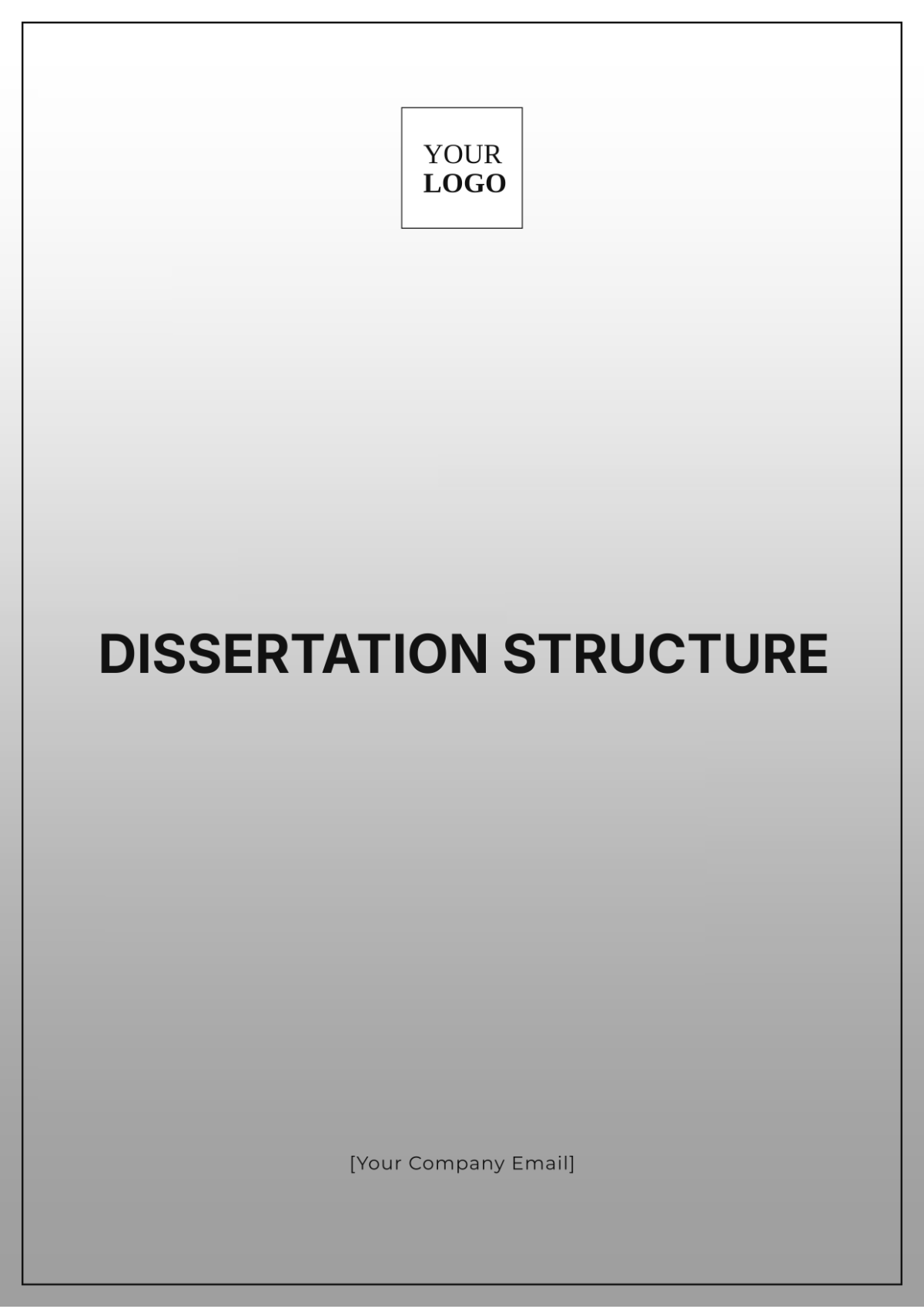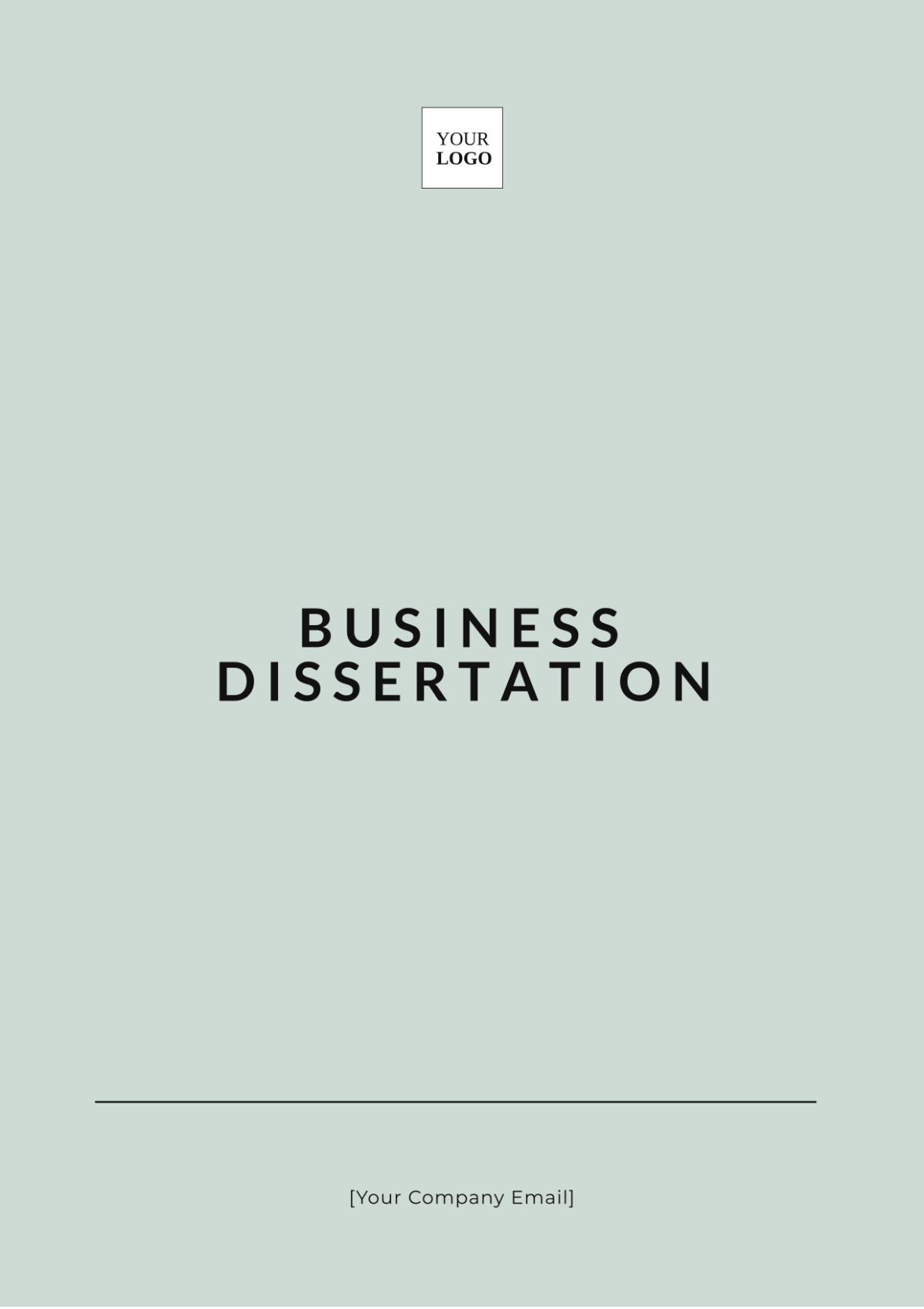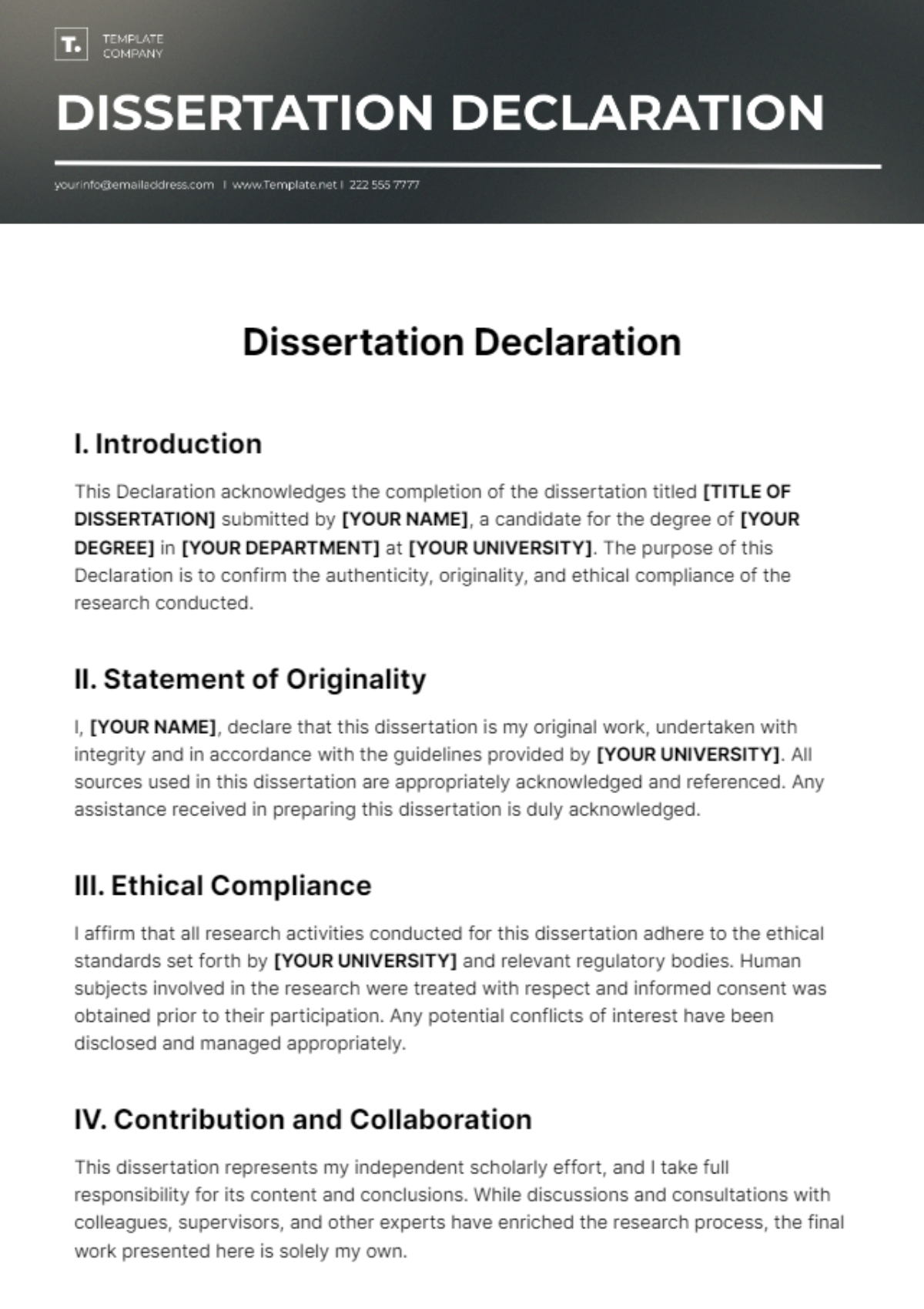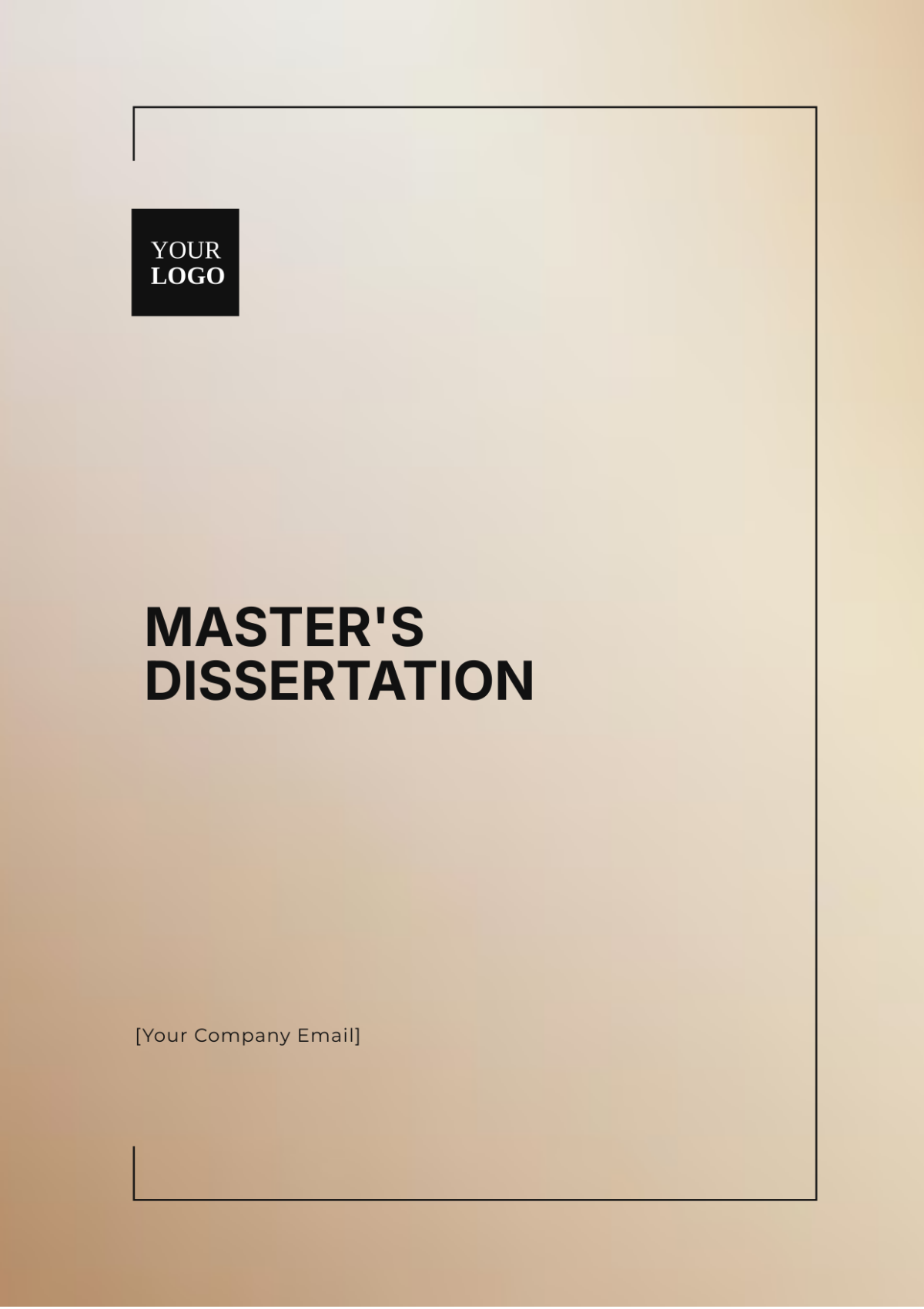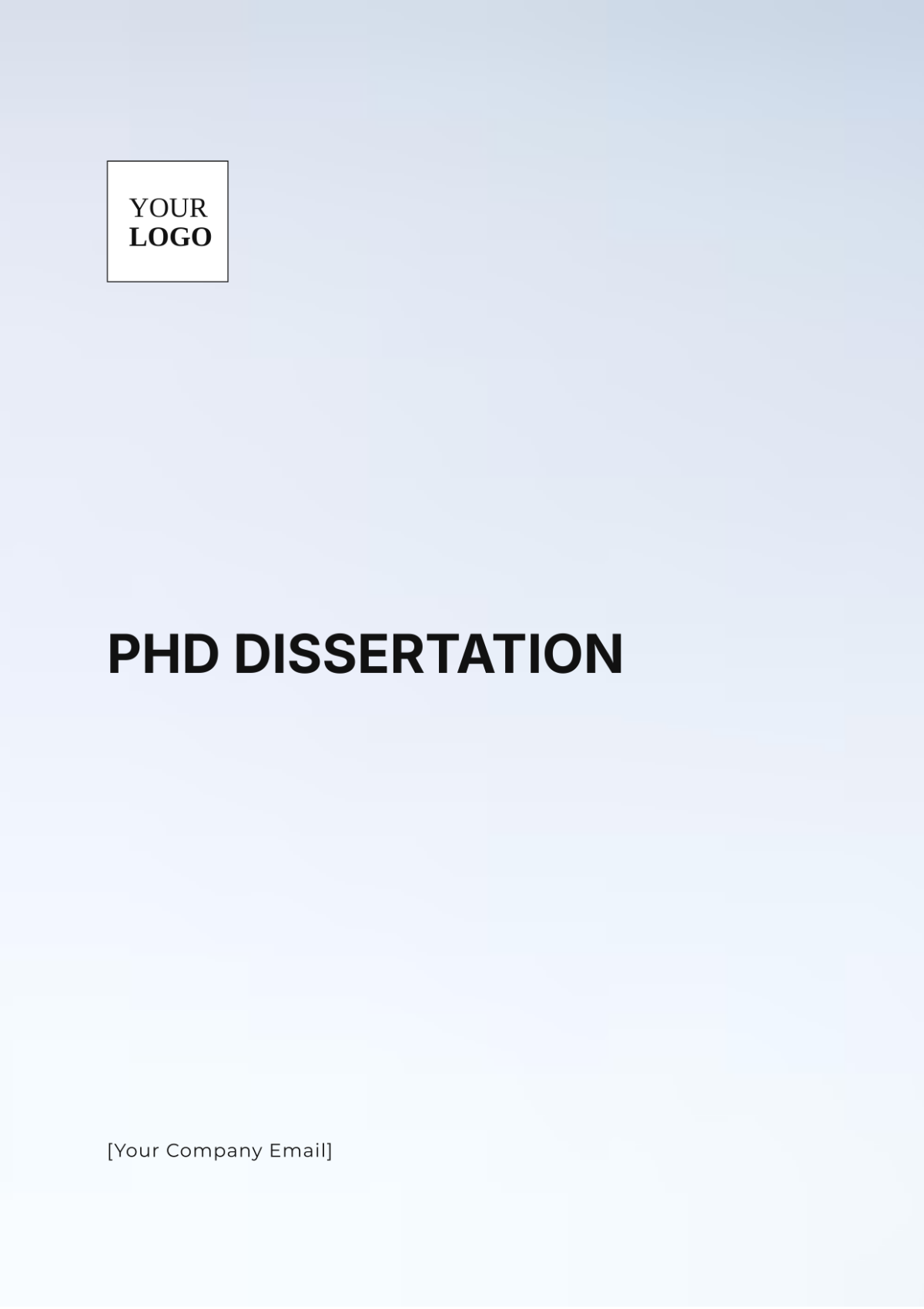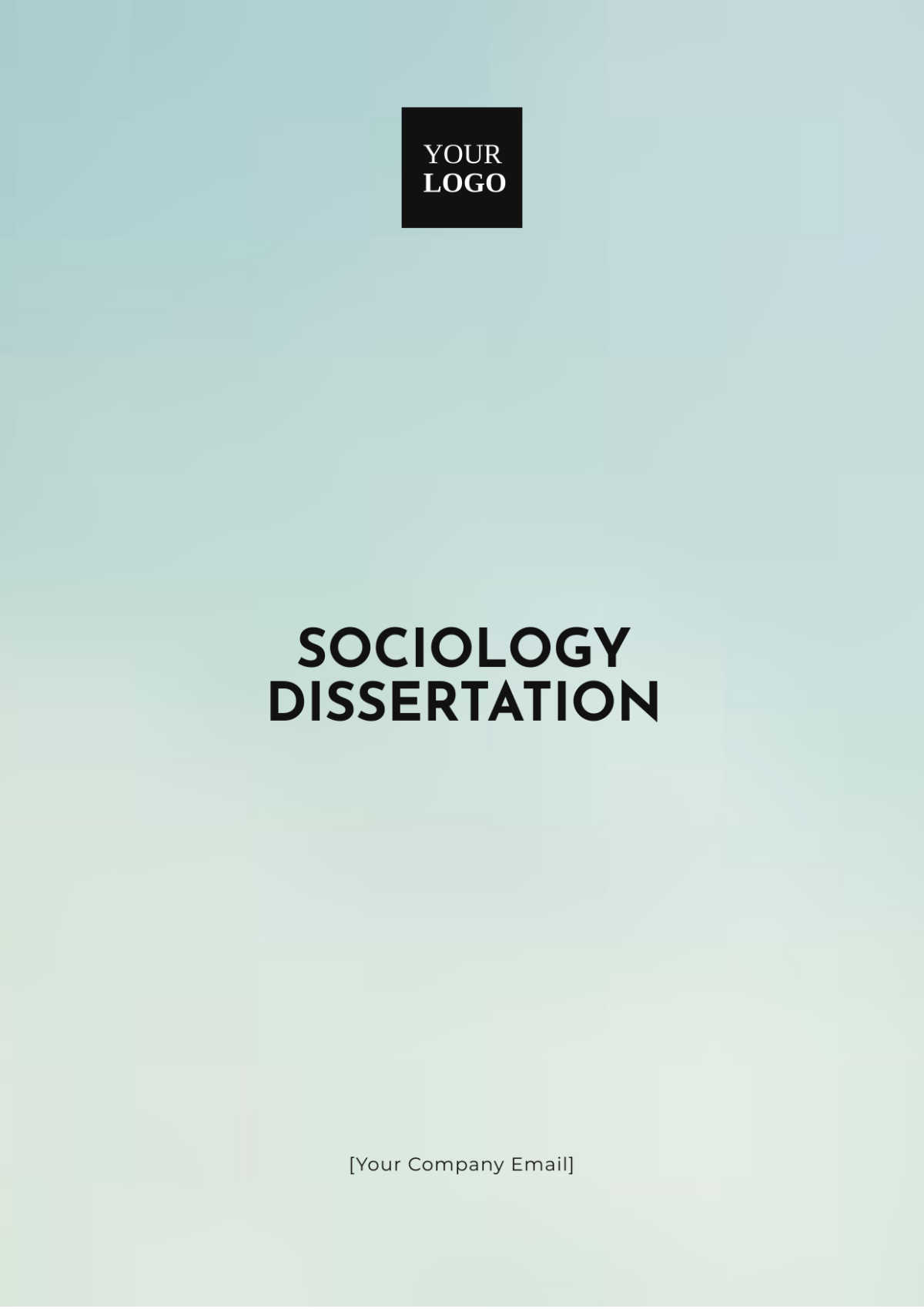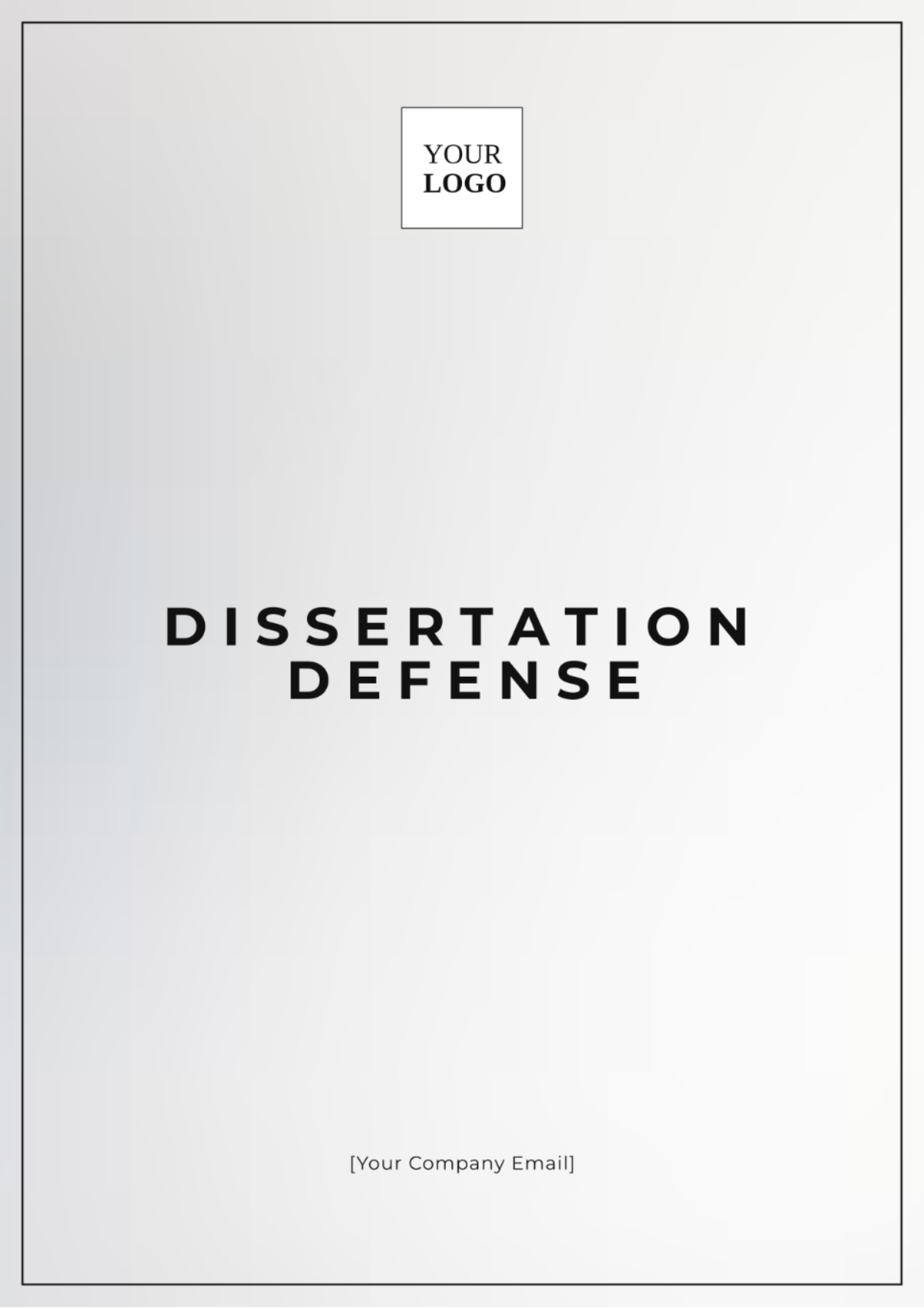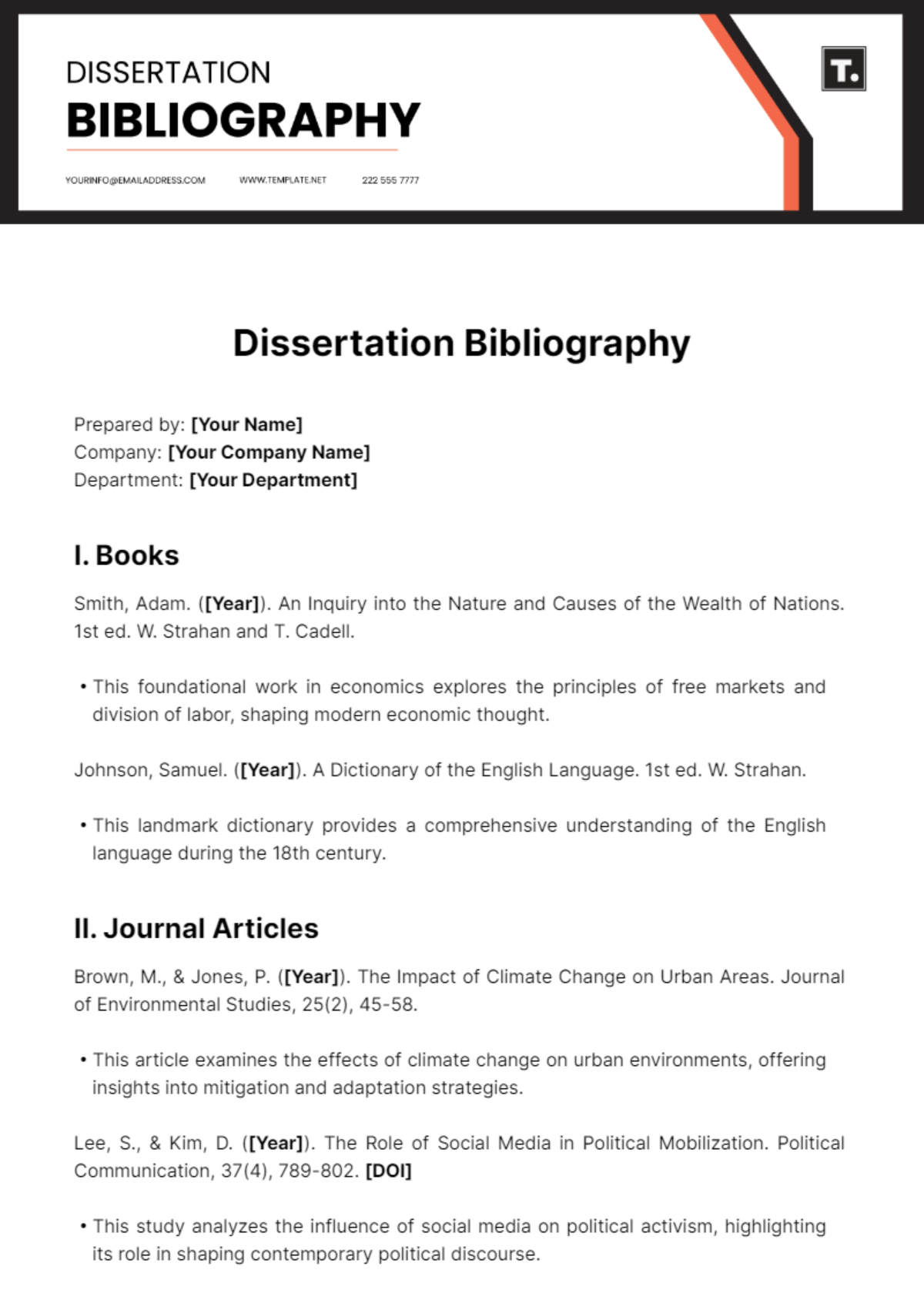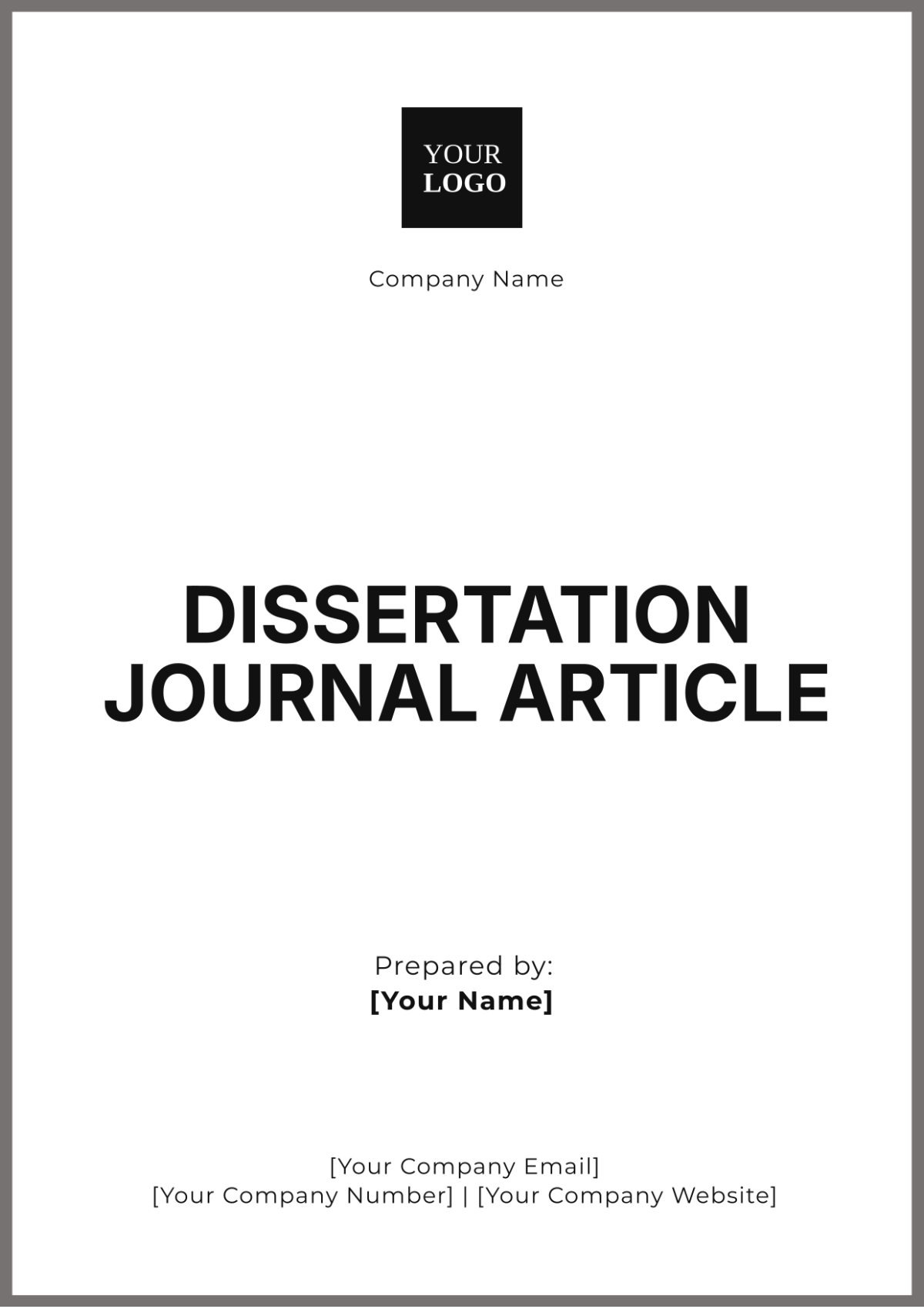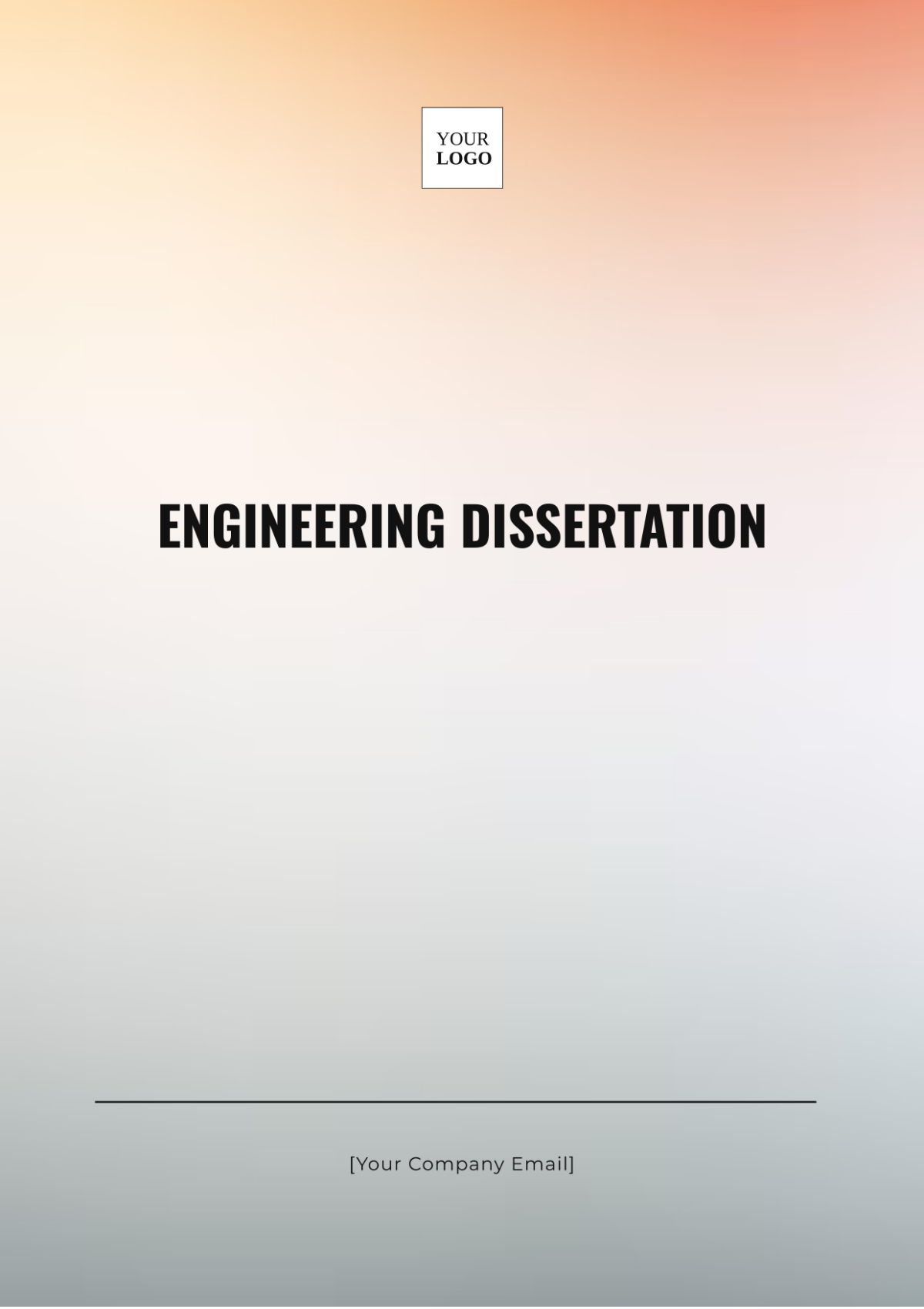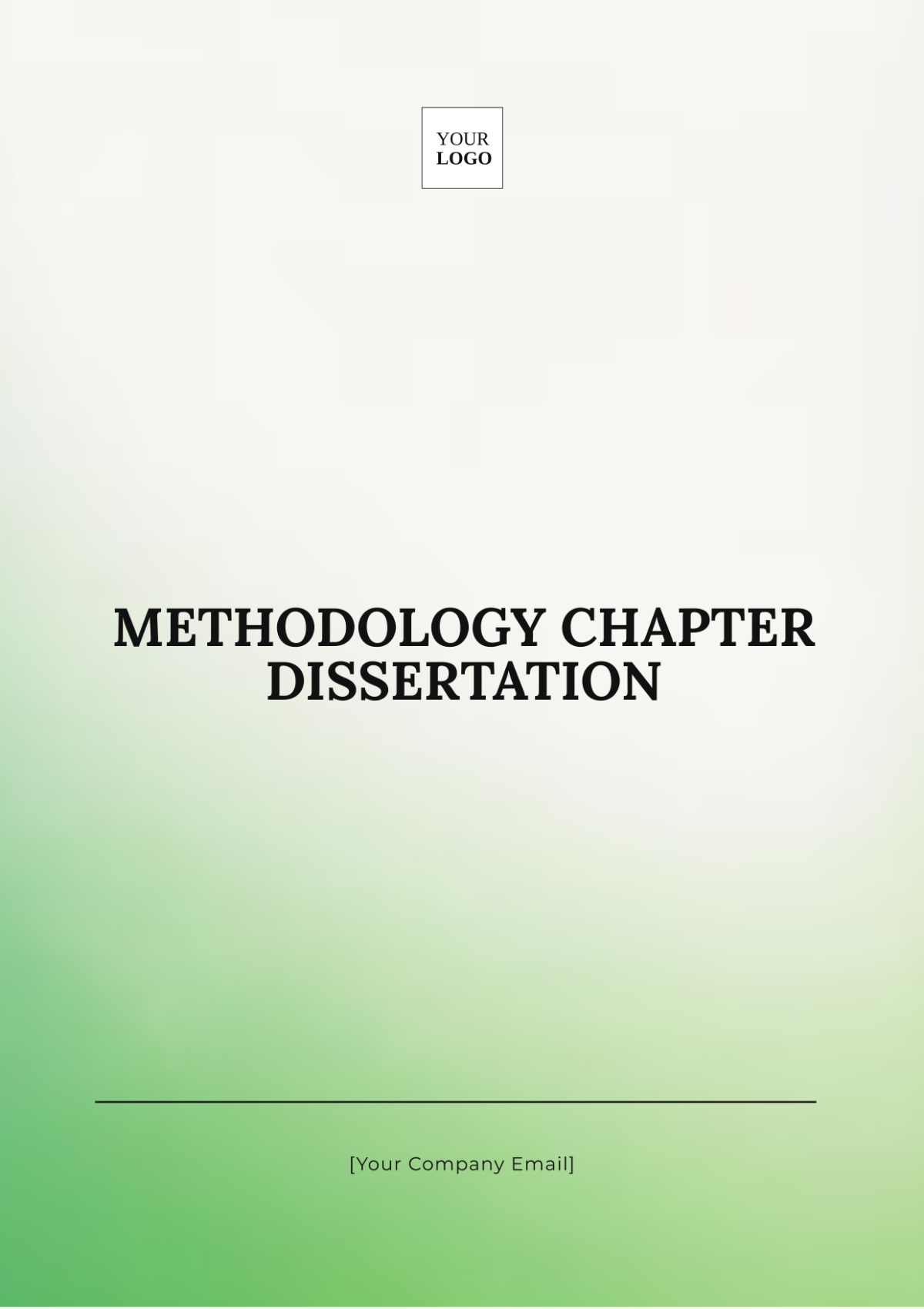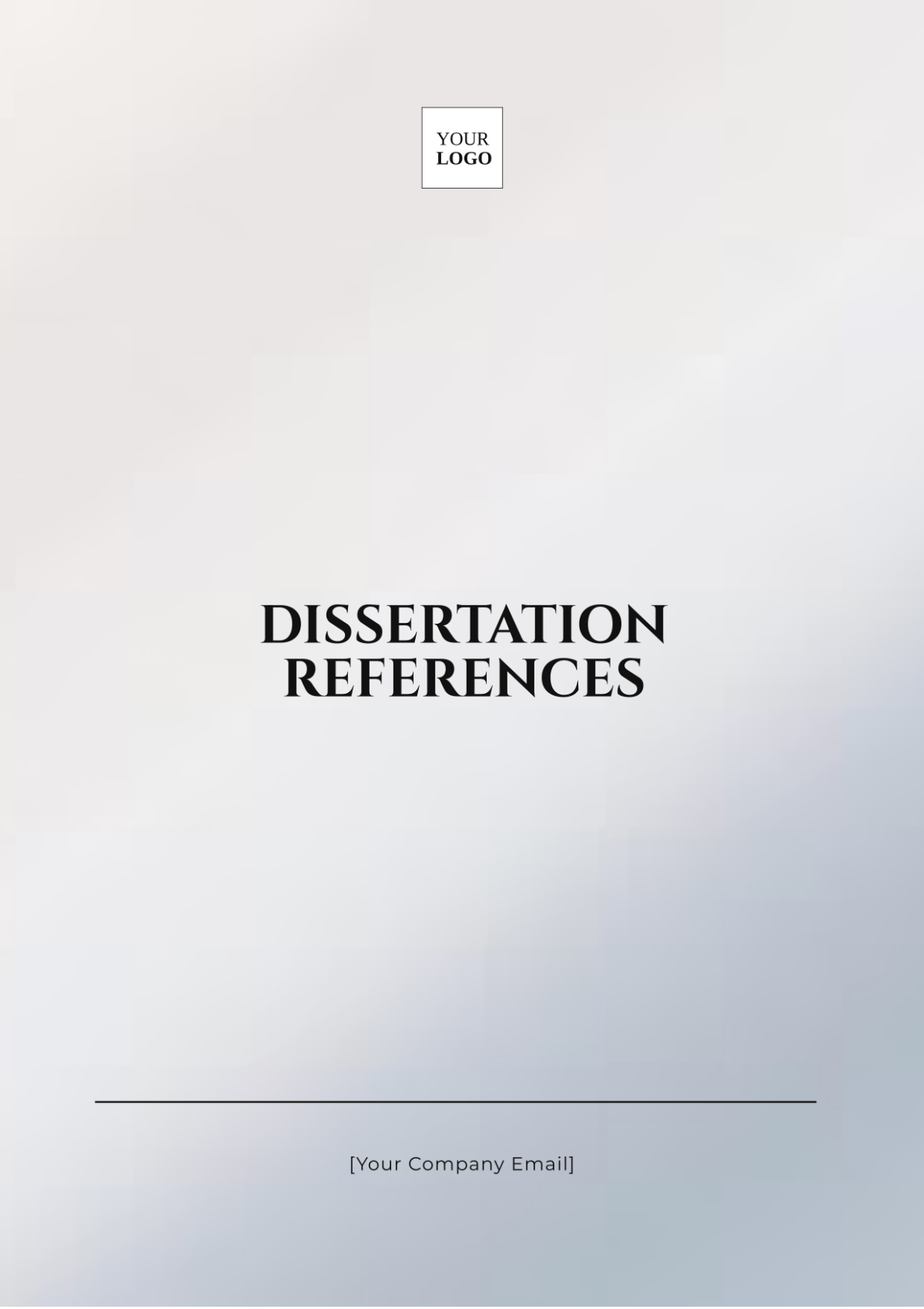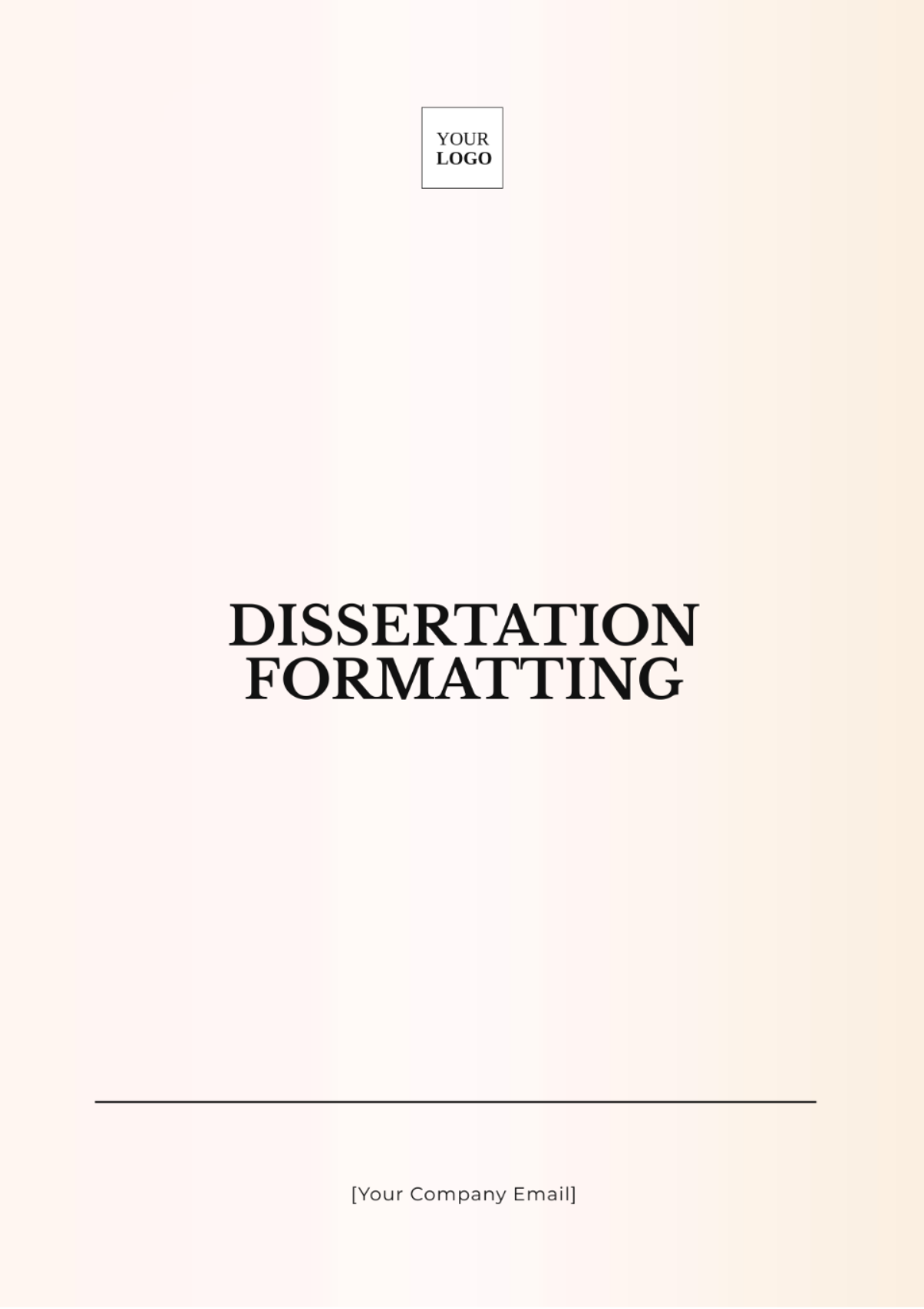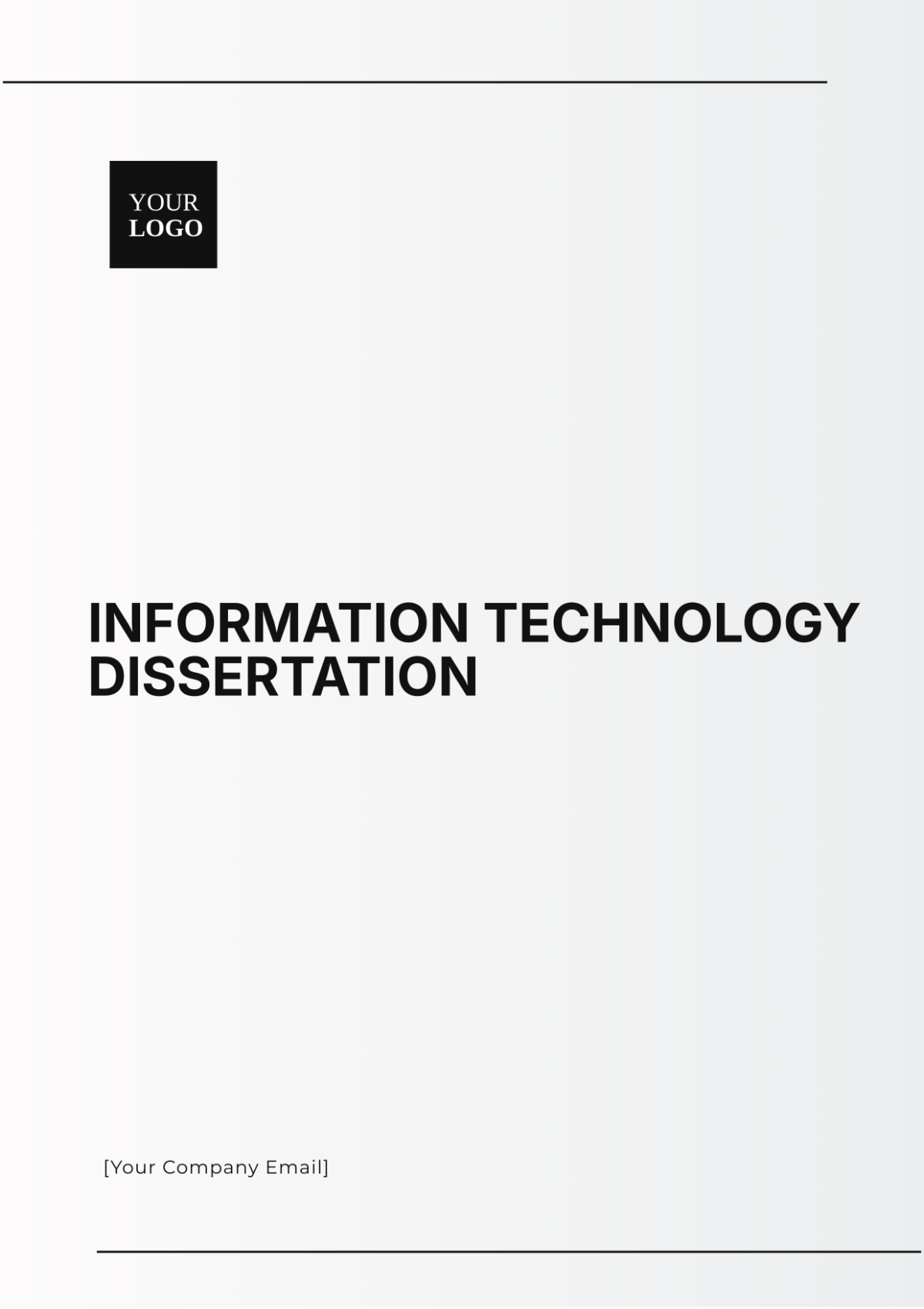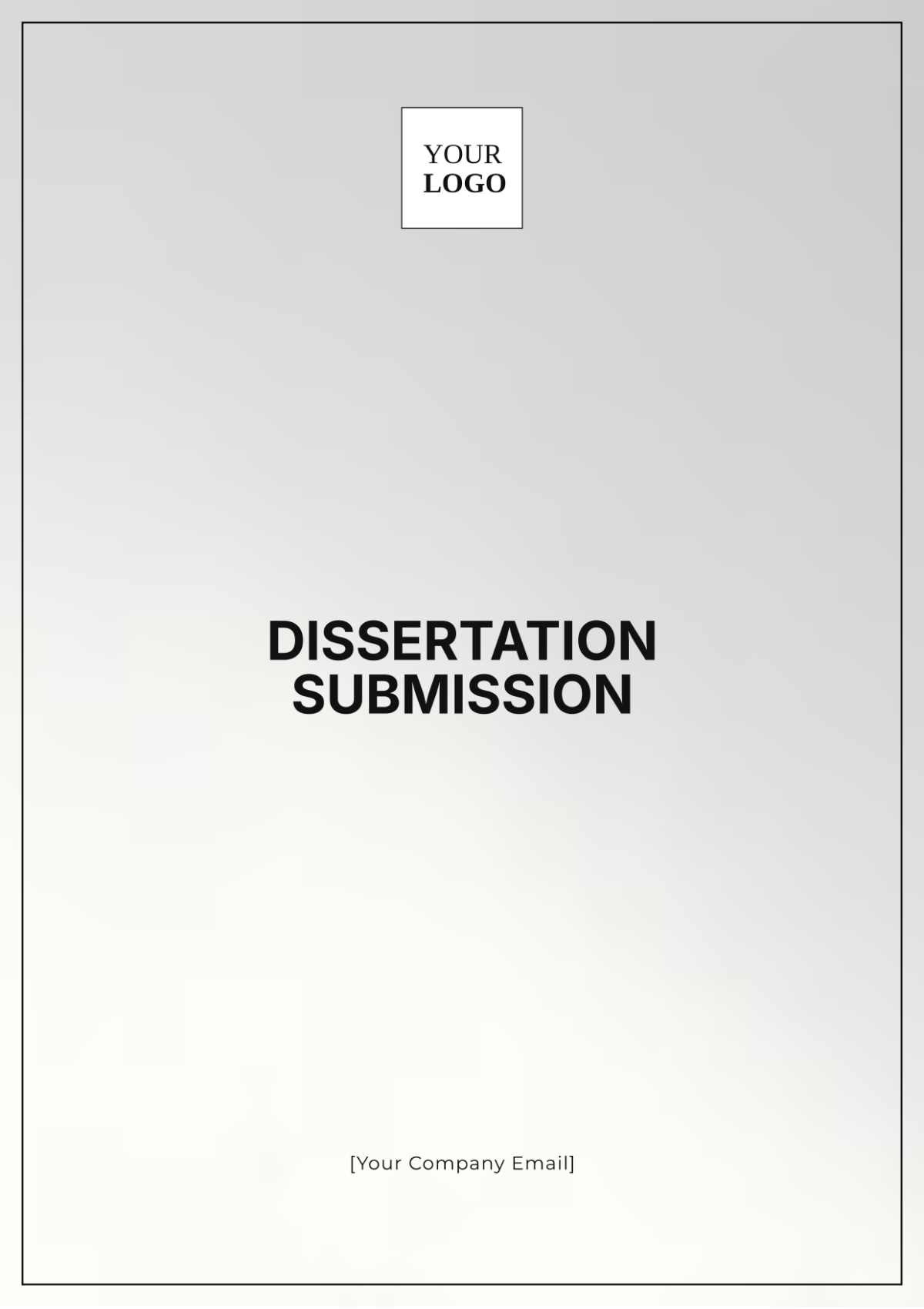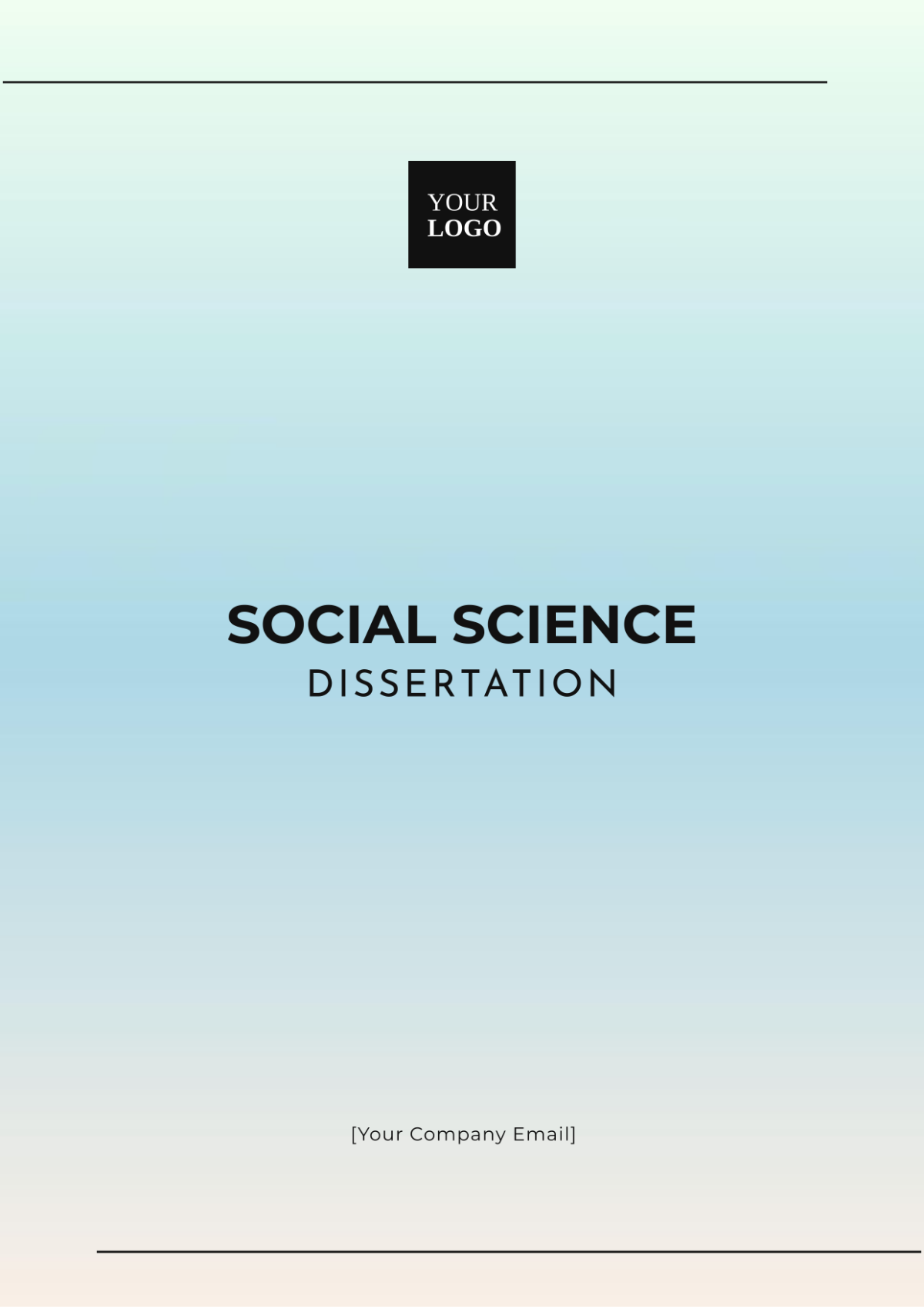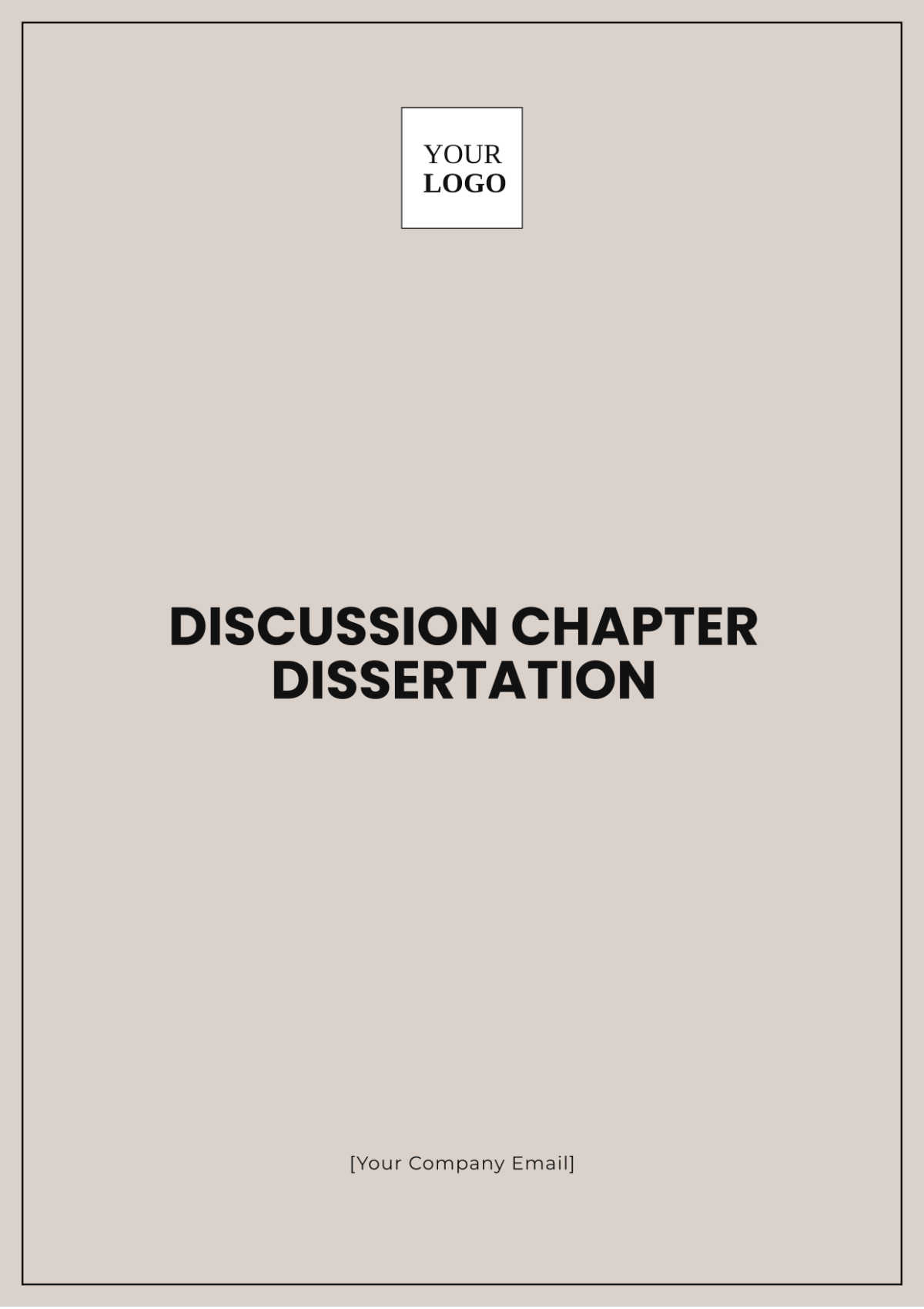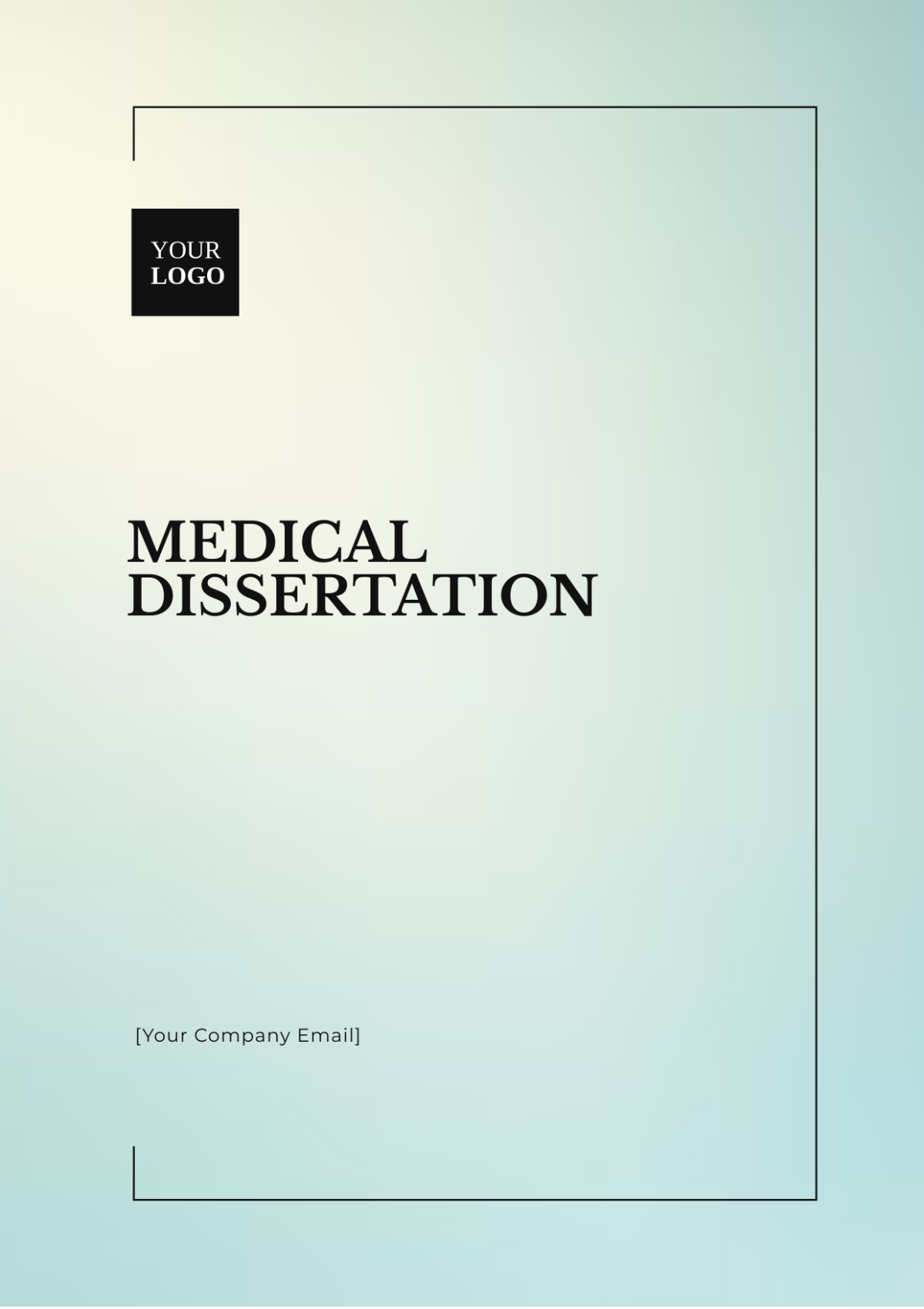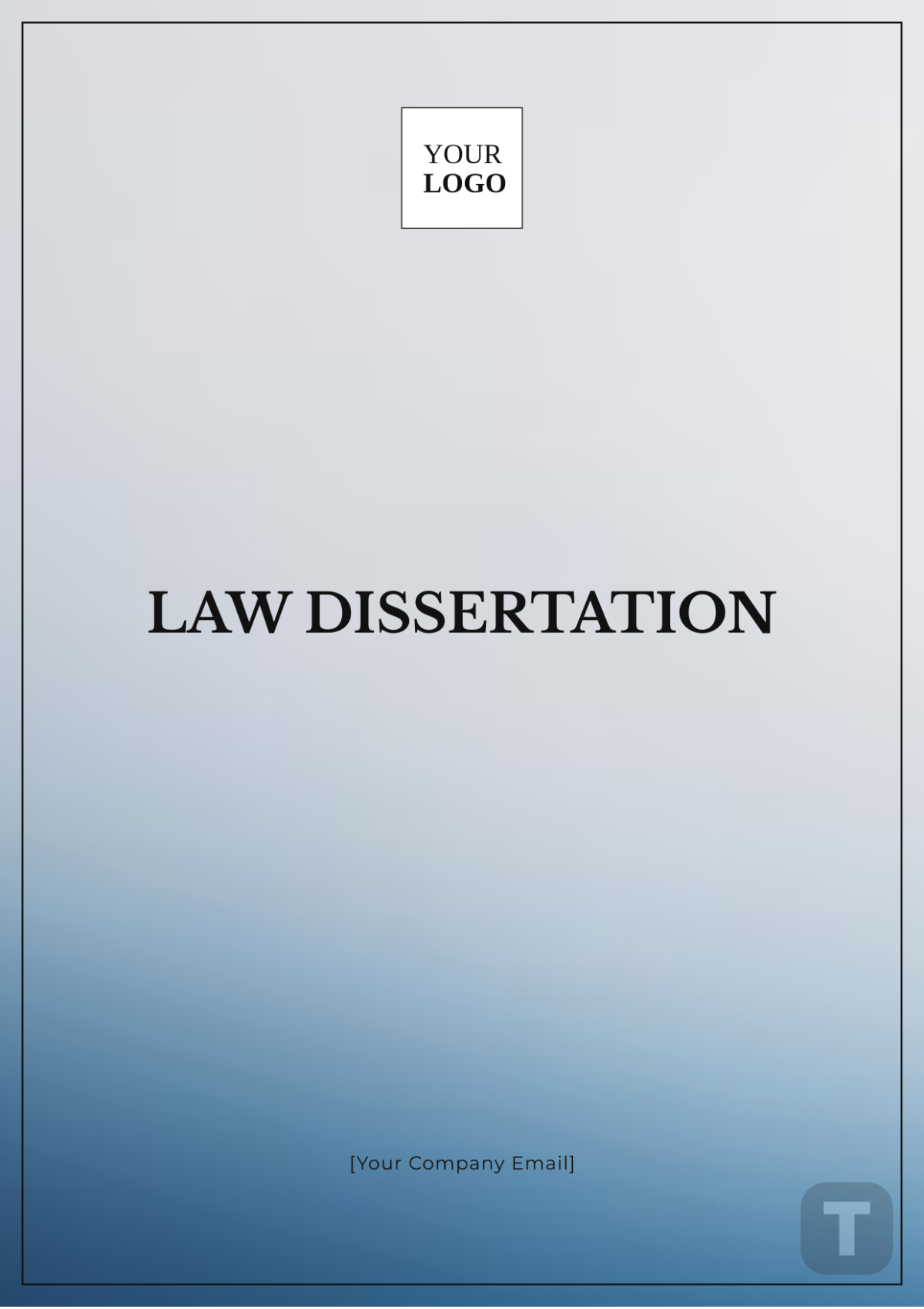Undergraduate Dissertation
Prepared By: [Your Name]
I. Introduction
This dissertation investigates the significant impact of social media on undergraduate students' academic performance, exploring how platforms such as Facebook, Twitter, Instagram, and LinkedIn affect their study habits, engagement with academic materials, and overall well-being. It aims to understand how the widespread use of social media has changed interaction, communication, and access to information for young people, particularly in an academic context, and examines both the positive and negative effects to offer insights for improving educational practices and student support services.
II. Literature Review
A. The Rise of Social Media
Social media platforms have become deeply ingrained in daily life, offering a range of functionalities from casual social interaction to professional networking. The exponential growth of these platforms, now with billions of users worldwide, has introduced new dynamics into educational environments. The increasing integration of social media into daily routines has made its influence on learning processes and academic outcomes more apparent, warranting close examination.
B. Positive Impacts
1. Access to Educational Resources
Social media platforms, particularly LinkedIn and Twitter, provide students with access to a vast array of educational resources, including online courses, scholarly articles, and expert insights. These resources can supplement traditional academic materials, offering broader perspectives and up-to-date information that enhance students' understanding of their subjects.
2. Collaboration and Networking Opportunities
Social media facilitates collaboration among students, enabling the formation of study groups, participation in academic discussions, and connections with peers and professionals within their field of study. This connectivity can enrich learning experiences and provide networking opportunities that may be invaluable for students' future careers.
3. Enhanced Communication with Peers and Professors
Platforms like Facebook and LinkedIn make it easier for students to communicate with peers and professors, fostering a more collaborative and interactive learning environment. This can lead to a deeper engagement with academic content and a stronger sense of community within academic institutions.
C. Negative Impacts
1. Distraction and Procrastination
One of the most significant drawbacks of social media is its potential to distract students from their academic responsibilities. The constant stream of notifications and the lure of endless scrolling can lead to procrastination, reducing study time and negatively affecting academic performance.
2. Cyberbullying and Mental Health Issues
Social media also exposes students to negative experiences, such as cyberbullying, which can severely impact mental health. The pressure to maintain a certain online persona and the constant comparison with peers' curated lives can lead to stress, anxiety, and depression, all of which can detract from academic performance.
3. Dependence on Instant Gratification
The culture of instant gratification fostered by social media can undermine students' ability to engage in deep, focused learning. The constant need for immediate responses and rewards can shorten attention spans and make it challenging to commit to long-term academic projects.
III. Methodology
A. Research Design
This study employs a mixed-method research design, integrating both quantitative and qualitative approaches to provide a comprehensive analysis of social media's impact on academic performance. The combination of surveys and interviews allows for a more nuanced understanding of the data, capturing both statistical trends and personal experiences that shed light on the multifaceted nature of social media usage.
B. Participants
The study involves 200 undergraduate students from various disciplines at XYZ University, ensuring a diverse sample that reflects different academic fields, social media habits, and levels of academic performance. Participants were selected through stratified random sampling to ensure representation across all years of study and academic majors.
C. Data Collection
1. Online Surveys
Surveys were administered to gather quantitative data on participants' social media usage, including time spent on each platform, purpose of use, and self-reported impacts on academic performance. The data provides a broad overview of social media's role in students' academic lives.
2. Focus Group Discussions
Focus groups offered a platform for students to discuss their experiences with social media in a group setting. These discussions revealed shared experiences and collective perceptions, providing context that complements the survey data.
3. Individual Interviews
In-depth interviews were conducted with a subset of participants to explore personal narratives and specific cases where social media significantly impacted academic performance. These interviews delved into complex issues such as mental health, time management, and academic stress, offering insights that enrich the quantitative findings.
D. Data Analysis
Quantitative data from the surveys were analyzed using SPSS software, focusing on correlations between social media usage and academic performance indicators such as GPA, study hours, and assignment completion rates. Qualitative data from the focus groups and interviews were coded thematically, identifying recurring patterns, themes, and unique insights that could explain the quantitative findings.
IV. Results
A. Survey Findings
The survey results highlighted the differential impact of various social media platforms on academic performance:
Facebook: Students spent an average of 2 hours per day on Facebook, with most reporting a negative impact on academic performance due to distractions and time spent on non-academic content.
Twitter: Students spent approximately 1.5 hours per day on Twitter, with the impact on academics being largely neutral. However, some students reported using Twitter for academic purposes, such as following educational accounts.
Instagram: Instagram was the most time-consuming platform, with students spending around 3 hours per day. It was predominantly associated with a negative impact, largely due to its emphasis on visual content and the time spent browsing non-academic material.
LinkedIn: LinkedIn had a positive correlation with academic performance. Students spent about 1 hour per day on LinkedIn, using it for professional networking, accessing educational resources, and connecting with academic mentors.
B. Interview Insights
The in-depth interviews revealed several key themes:
Dependency: Many students reported a compulsive need to check their social media accounts frequently, often at the expense of their academic responsibilities. This dependency was linked to anxiety and fear of missing out (FOMO).
Resource Utilization: Some students effectively used social media as a tool for academic growth. Platforms like LinkedIn and Twitter were leveraged to join study groups, follow educational influencers, and access scholarly content that enhanced their learning.
Mental Health: The interviews uncovered the psychological toll of social media usage. Many students cited social media as a source of stress, contributing to feelings of inadequacy, anxiety, and depression, which in turn affected their academic focus and performance.
V. Discussion
A. Balancing the Scale
The study's findings highlight the dual-edged nature of social media in the academic lives of undergraduate students. While platforms like LinkedIn can enhance academic performance by providing networking and educational resources, others like Instagram and Facebook are more likely to serve as distractions. The key challenge lies in striking a balance between leveraging social media for academic growth and minimizing its potential to detract from academic goals.
B. Implications for Practice
Given these findings, educational institutions should consider the following strategies:
Incorporating Social Media in Learning: Institutions should explore ways to integrate social media into the learning process, such as using LinkedIn for professional development courses or Twitter for academic discussions. This approach can help harness the positive aspects of social media while mitigating distractions.
Time Management Workshops: Universities should offer workshops focused on time management, specifically addressing how students can manage their social media usage effectively. These workshops could provide practical strategies for minimizing distractions and optimizing study time.
Mental Health Support: In light of the mental health challenges associated with social media usage, universities should provide robust mental health support services. This includes counseling, stress management workshops, and peer support groups to help students cope with the pressures of both academic life and social media.
VI. Conclusion
This dissertation underscores the complex relationship between social media usage and academic performance among undergraduates. The research demonstrates that while social media can be a powerful tool for academic and professional growth, it also poses significant challenges that can hinder academic success. The findings suggest the need for balanced usage and institutional support to mitigate negative impacts while leveraging positive aspects. Future research should consider longitudinal studies to assess the long-term effects of social media on academic performance and explore the impact of emerging platforms on the educational landscape.
